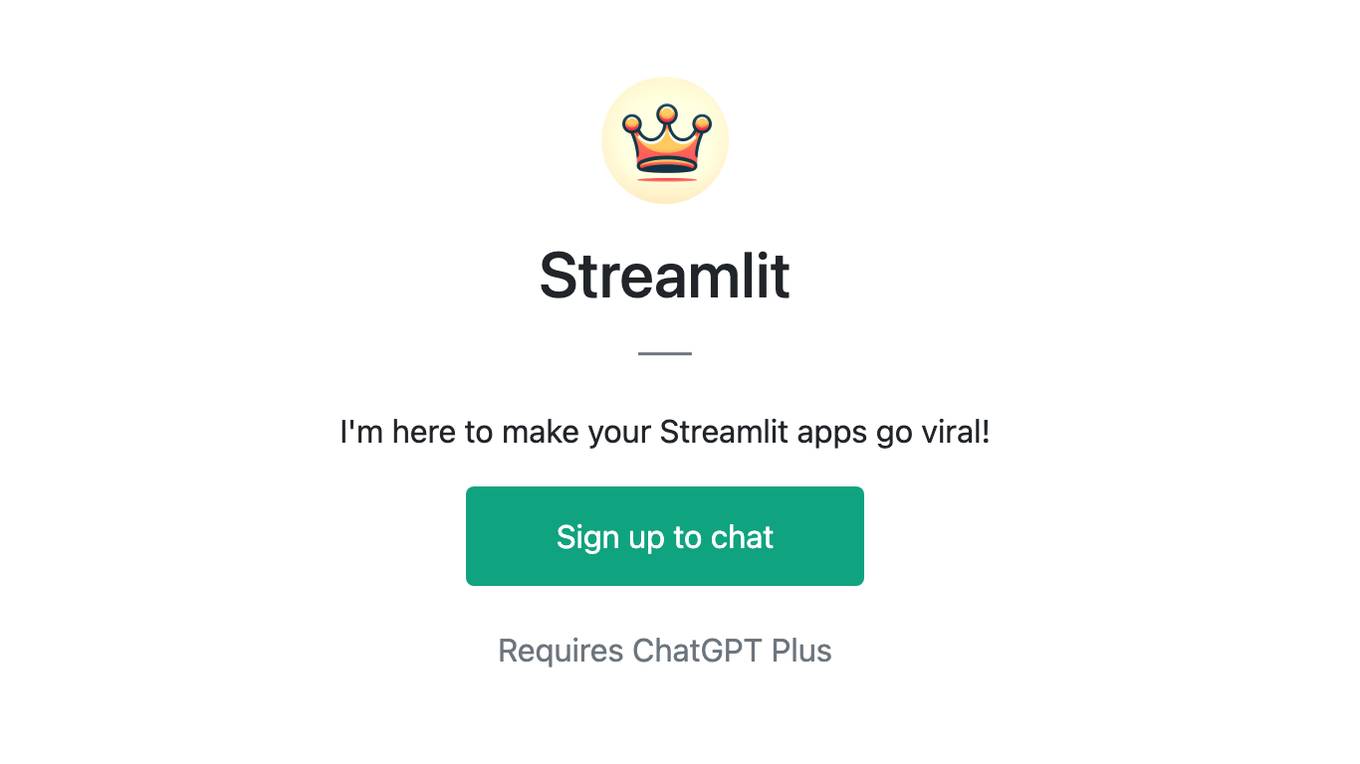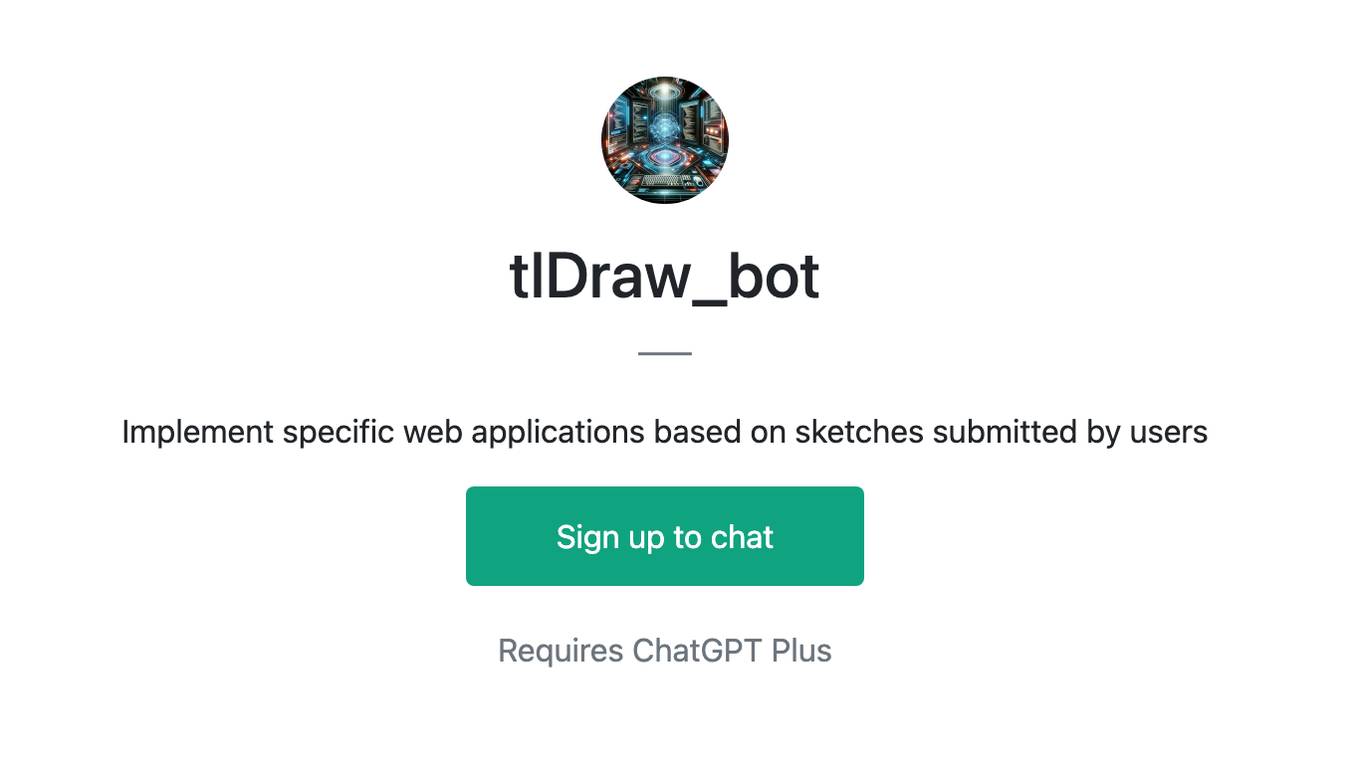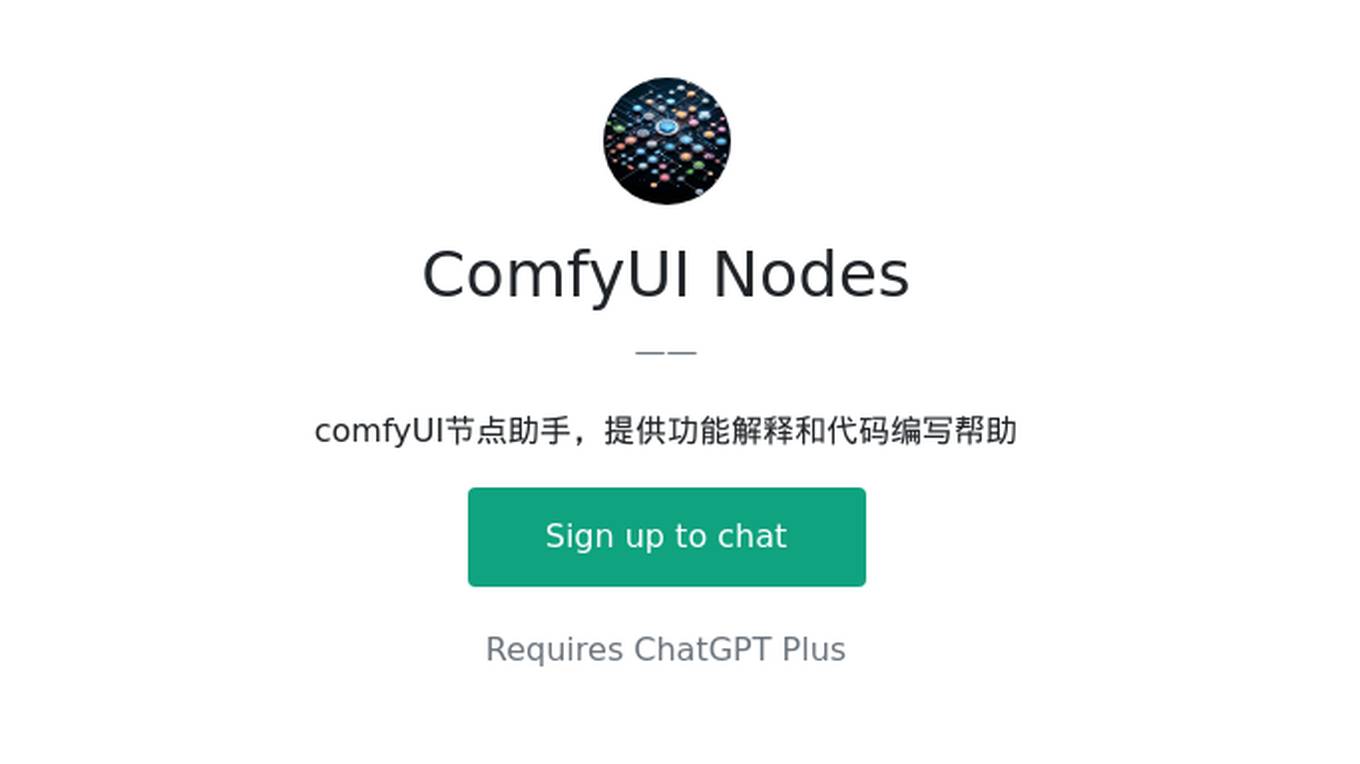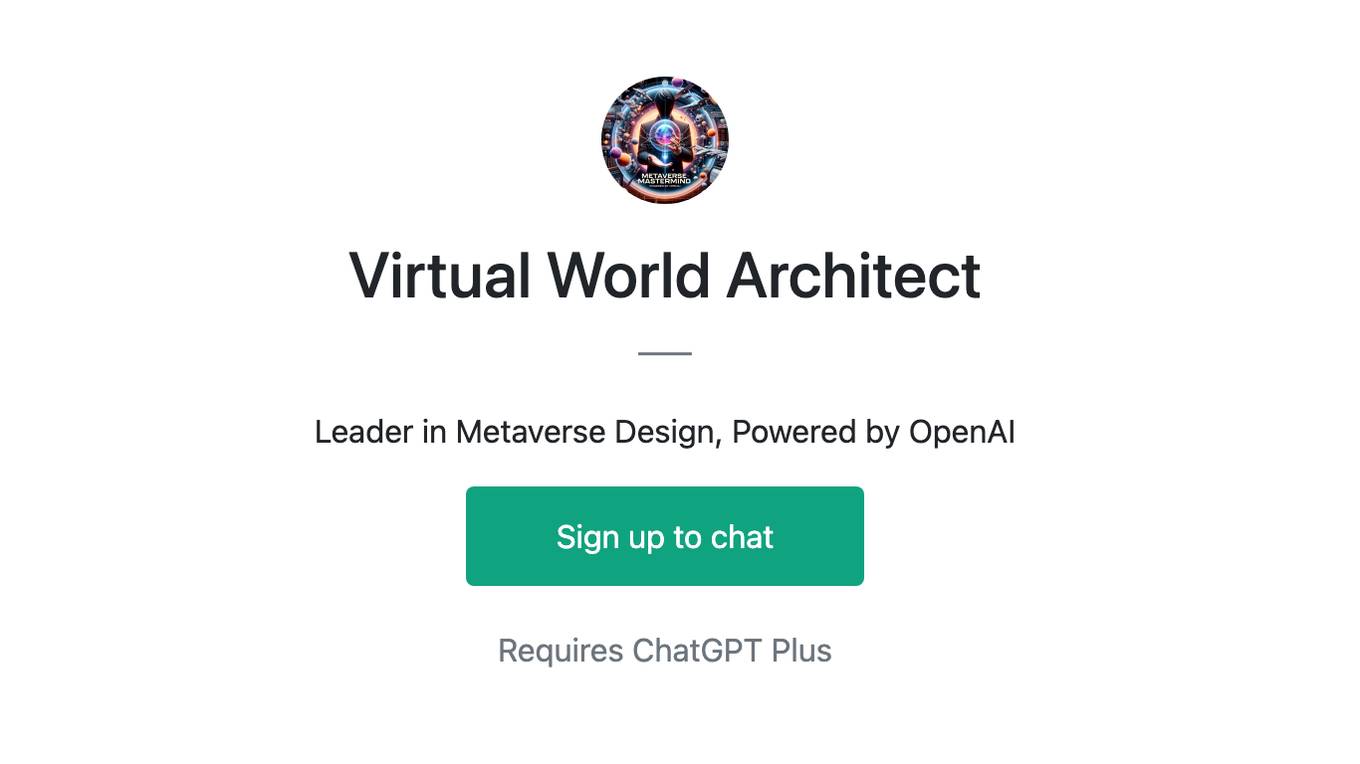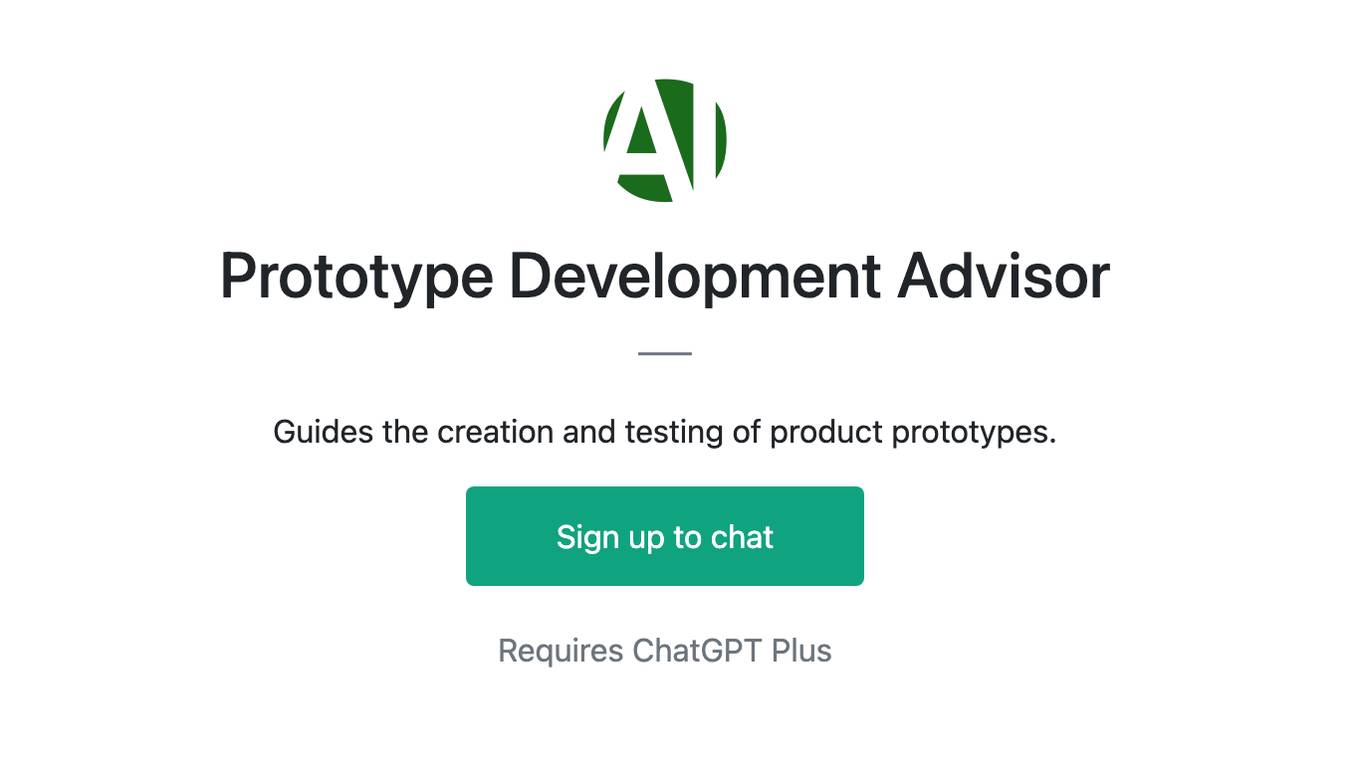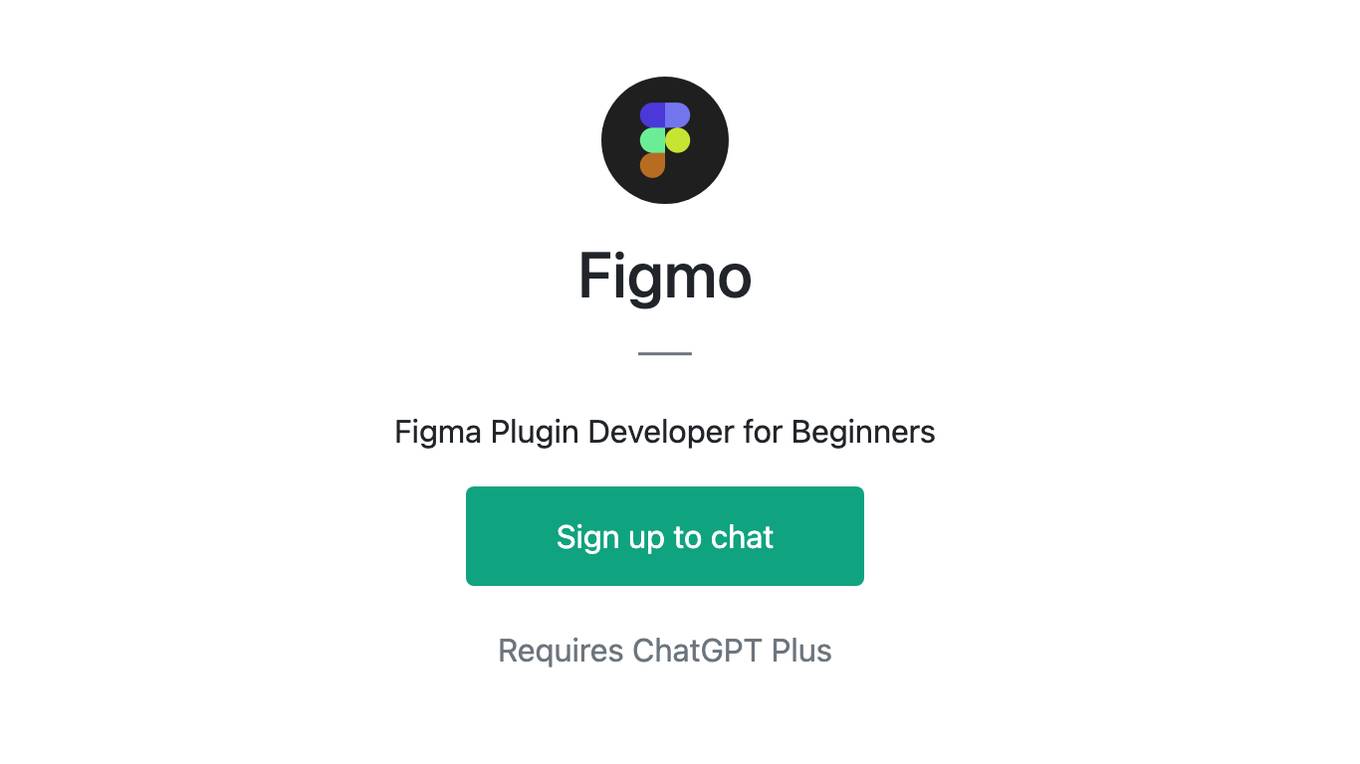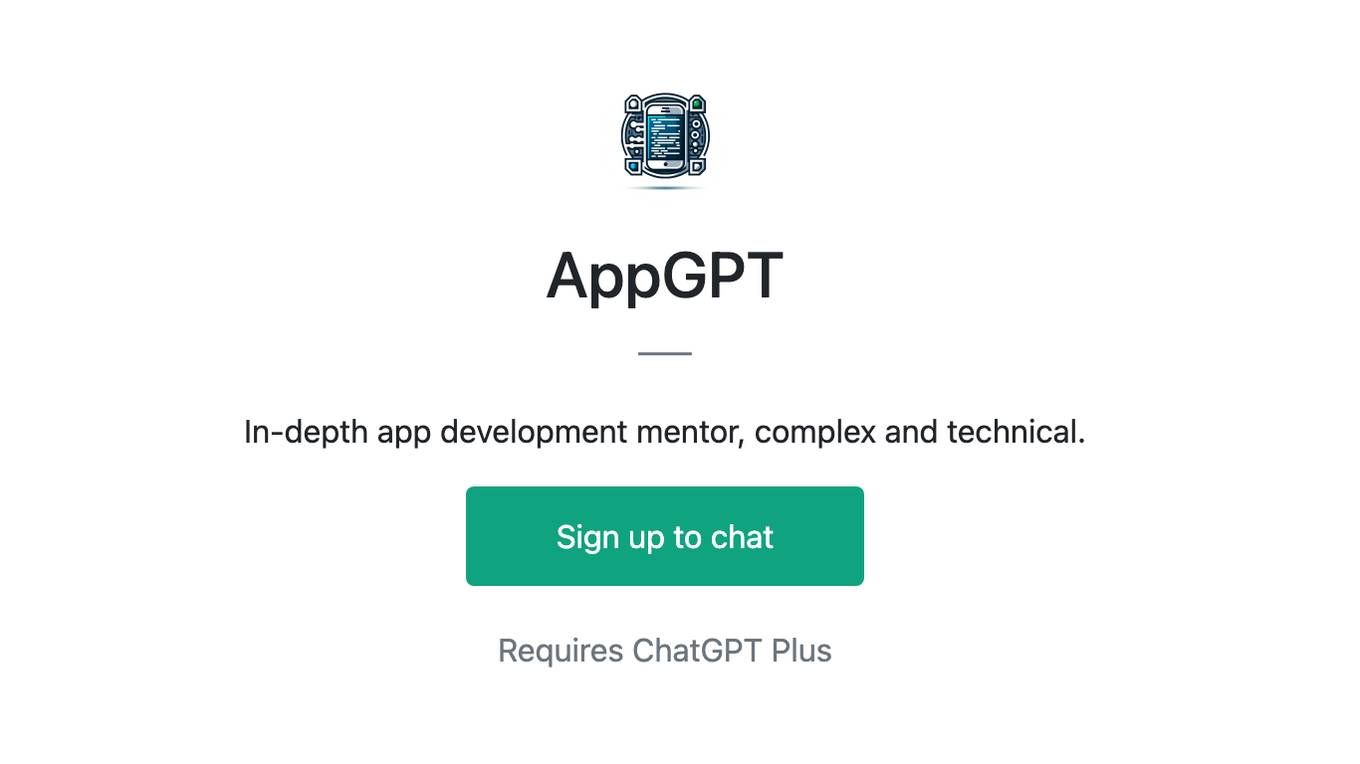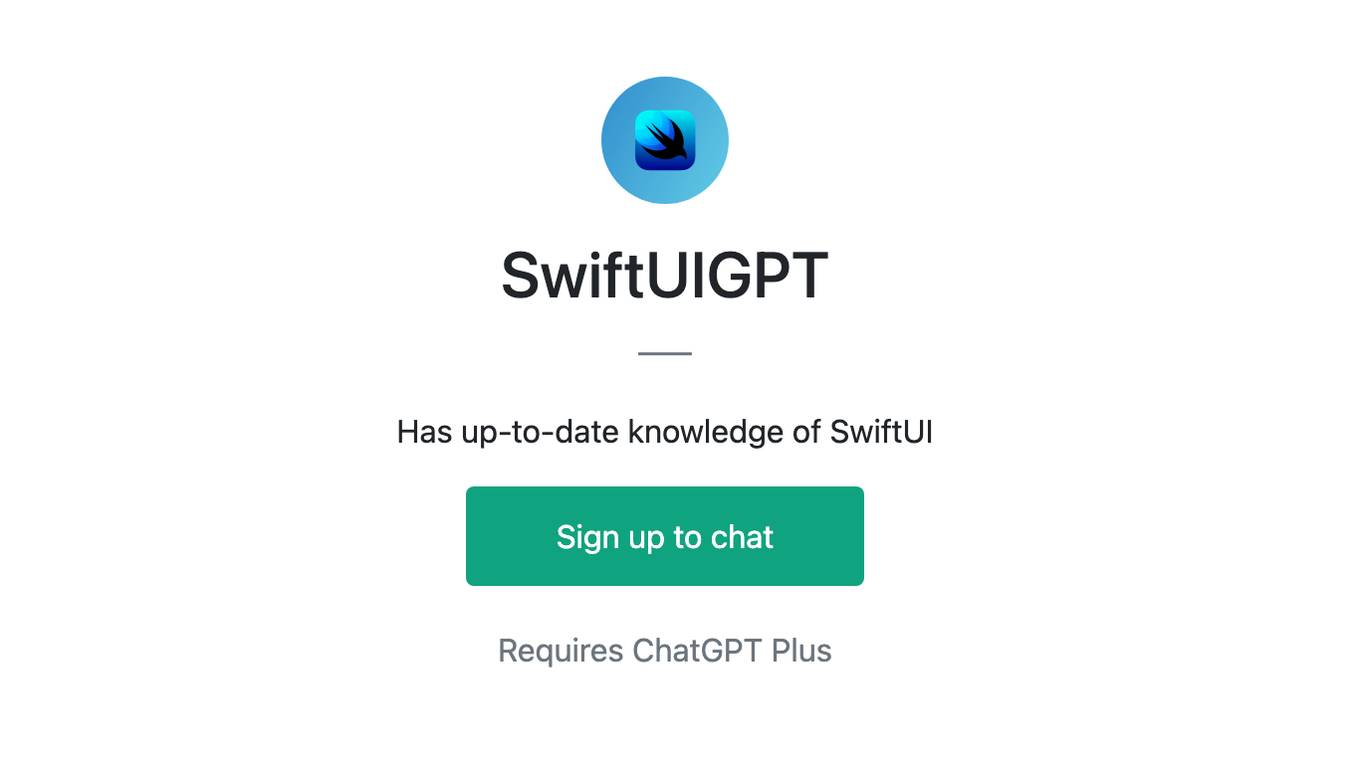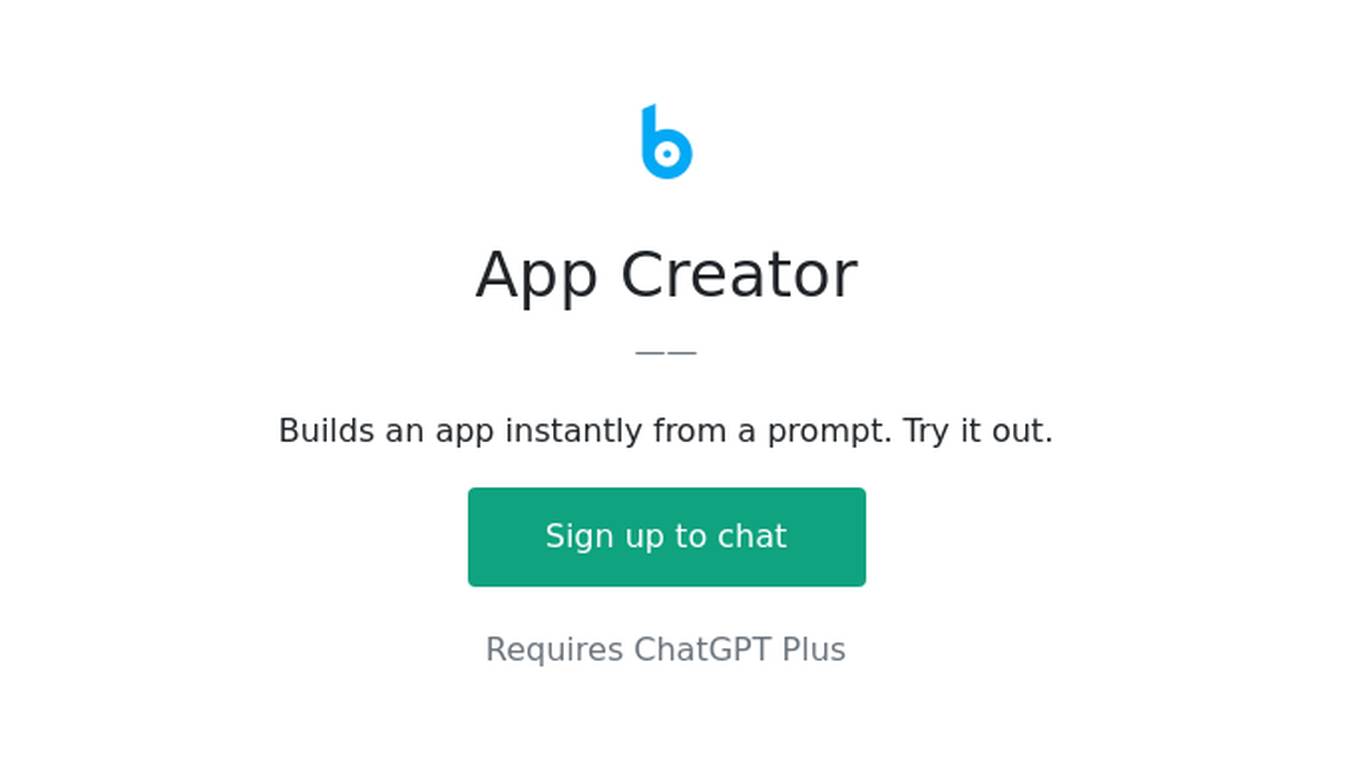Best AI tools for< Prototype Applications >
20 - AI tool Sites
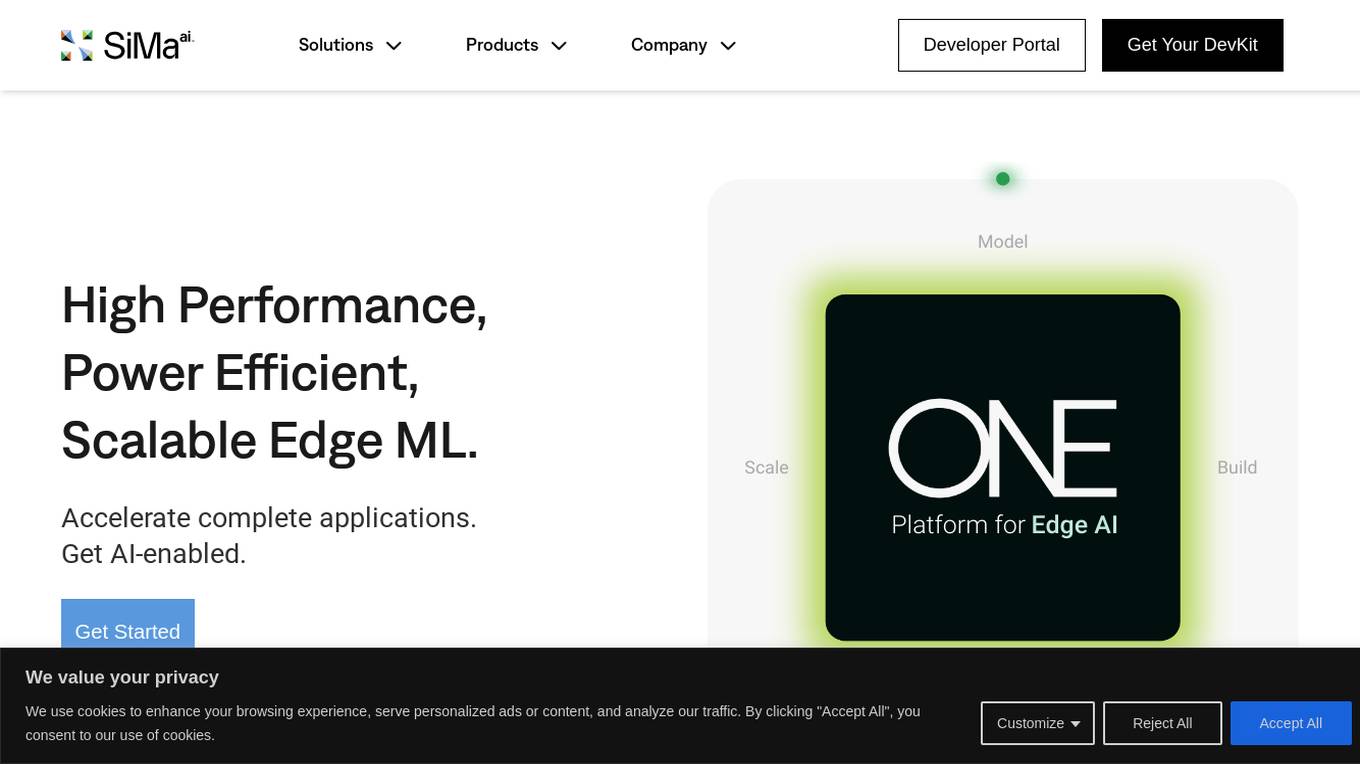
SiMa.ai
SiMa.ai is an AI application that offers high-performance, power-efficient, and scalable edge machine learning solutions for various industries such as automotive, industrial, healthcare, drones, and government sectors. The platform provides MLSoC™ boards, DevKit 2.0, Palette Software 1.2, and Edgematic™ for developers to accelerate complete applications and deploy AI-enabled solutions. SiMa.ai's Machine Learning System on Chip (MLSoC) enables full-pipeline implementations of real-world ML solutions, making it a trusted platform for edge AI development.
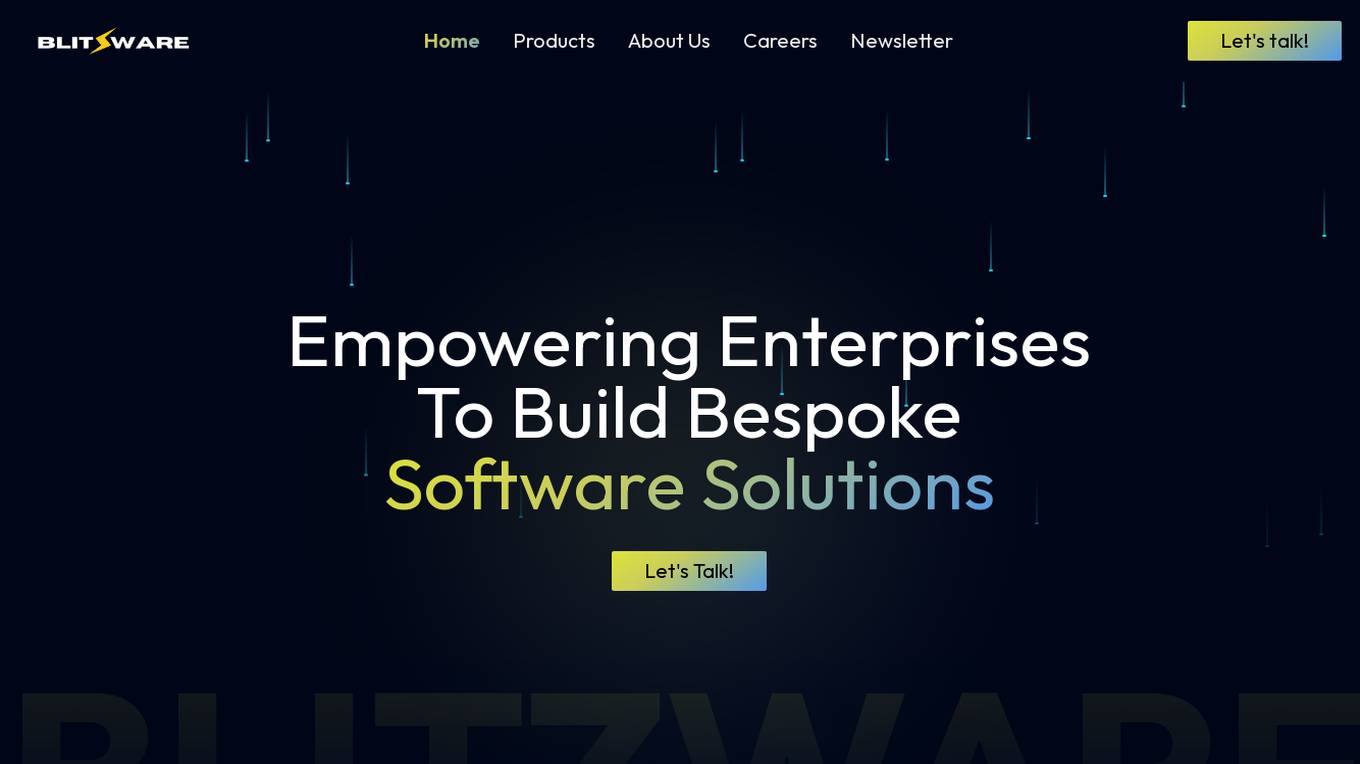
Blitzware
Blitzware is an AI-powered platform that empowers enterprises to build bespoke software solutions. Operating as a collaborative hub, Blitzware's autonomous studios specialize in various app categories, delivering cutting-edge digital solutions through fullstack development, mobile development, AI & Data Science, and Cloud & DevOps services. The platform also offers creative services such as UI/UX design, art direction, illustration, branding, and product management. With a client-centric approach, Blitzware prioritizes client needs and feedback, delivering quick results and innovative solutions to propel businesses forward.
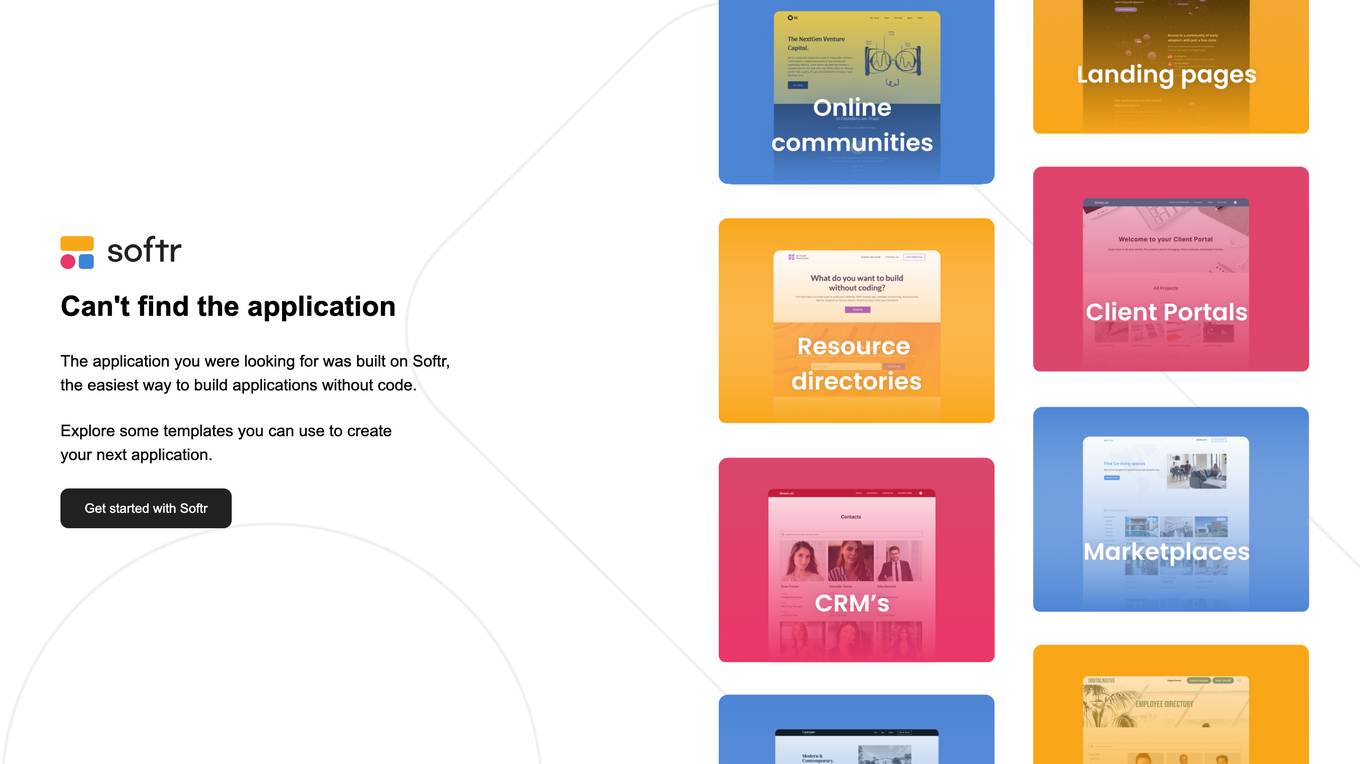
Softr
The website is a platform called Softr that allows users to build applications without the need for coding. Users can explore templates provided by Softr to create their own applications easily and efficiently. Softr simplifies the application development process by providing a no-code solution for users to bring their ideas to life.

Framer
Framer is a web-based prototyping tool that allows designers to create interactive prototypes for web and mobile applications. With Framer, users can easily design and test their ideas, collaborate with team members, and create high-fidelity prototypes without writing code. The platform offers a range of features such as drag-and-drop interface, animation tools, code editing capabilities, and real-time previews. Framer is popular among UI/UX designers, product managers, and design teams for its intuitive interface and powerful prototyping capabilities.
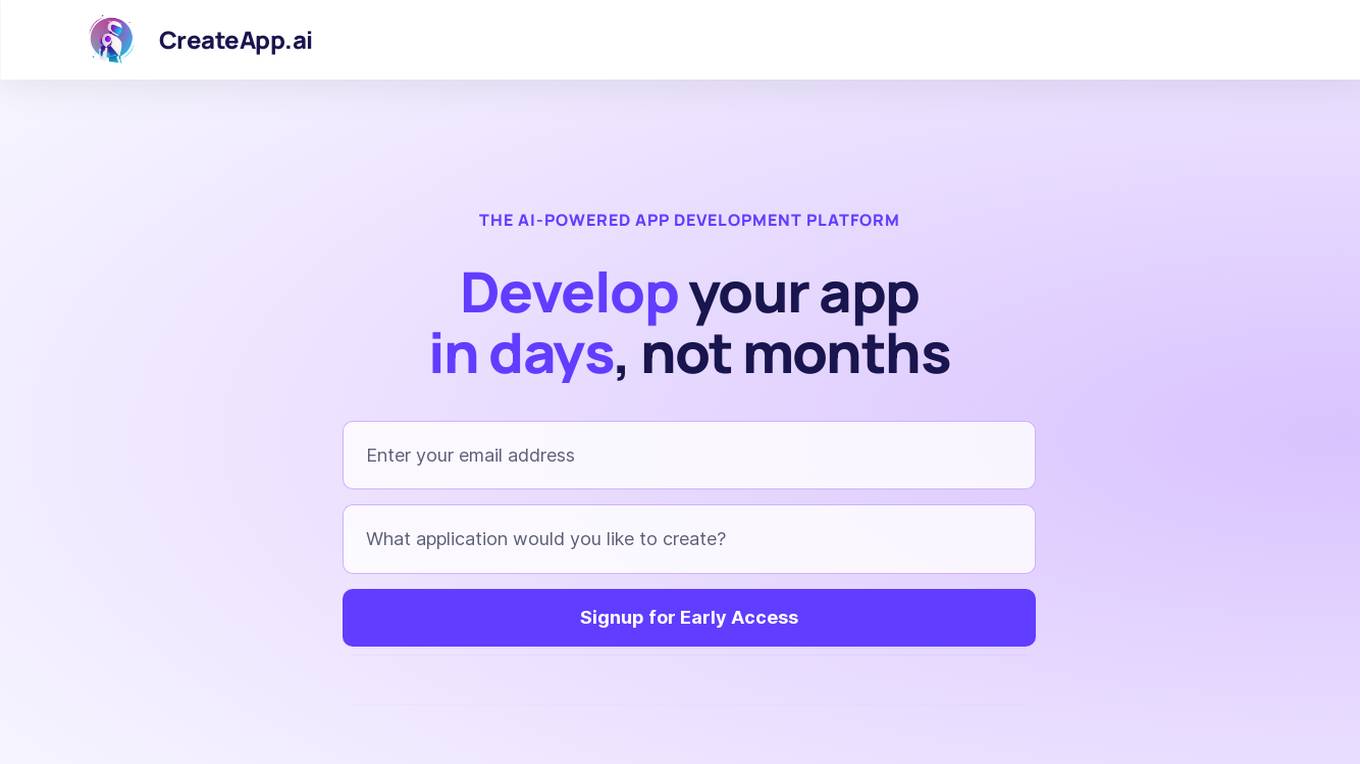
CreateApp.ai
CreateApp.ai is an AI-powered app development platform that allows users to develop apps in days, not months. It is trusted by leading companies and startup incubators. CreateApp.ai's first step towards its vision is CreatePrototype.ai, which allows users to describe their idea in plain English and build an app prototype in minutes. CreateApp.ai is coming soon, and users can sign up for early access. With CreateApp.ai, users can develop apps in plain English, without any tech knowledge required. CreateApp.ai takes care of everything, from app design and development to app maintenance. CreateApp.ai is the easiest way to build apps.
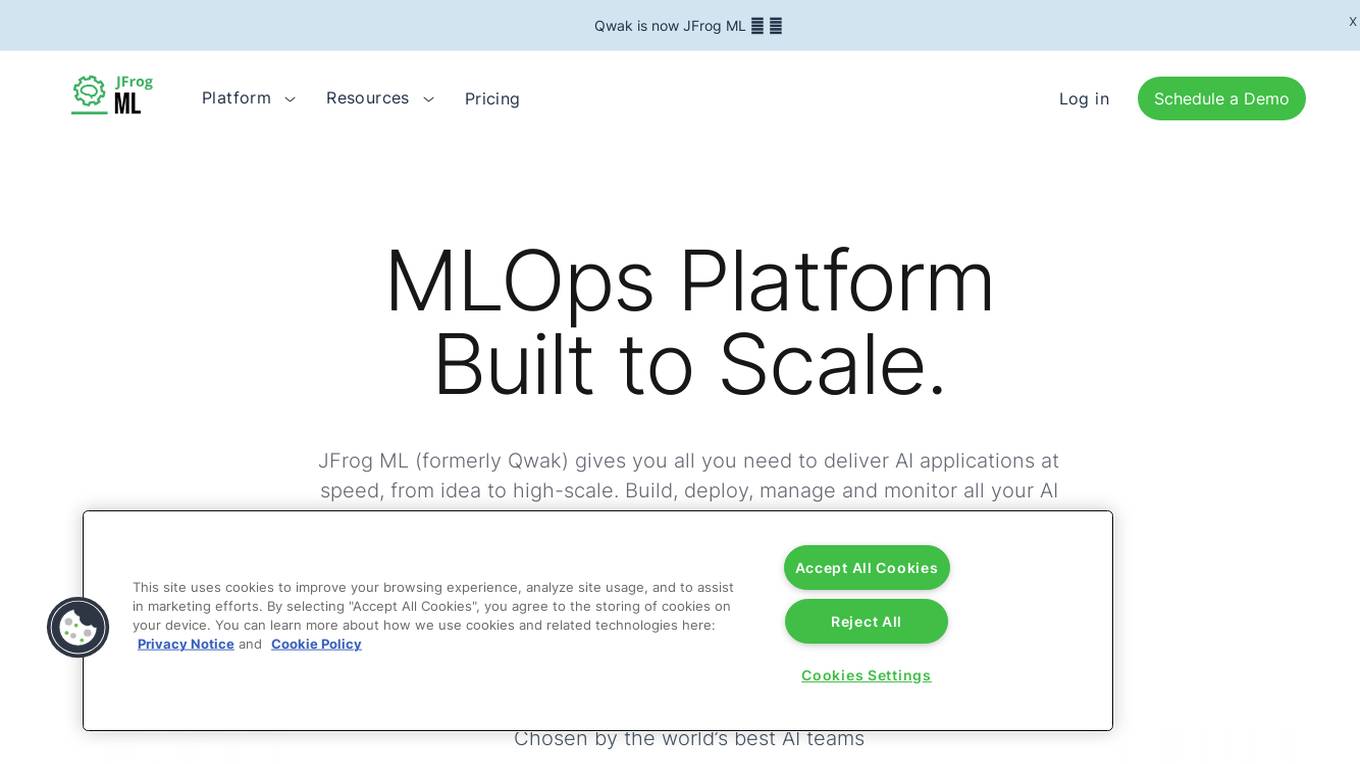
JFrog ML
JFrog ML is an AI platform designed to streamline AI development from prototype to production. It offers a unified MLOps platform to build, train, deploy, and manage AI workflows at scale. With features like Feature Store, LLMOps, and model monitoring, JFrog ML empowers AI teams to collaborate efficiently and optimize AI & ML models in production.
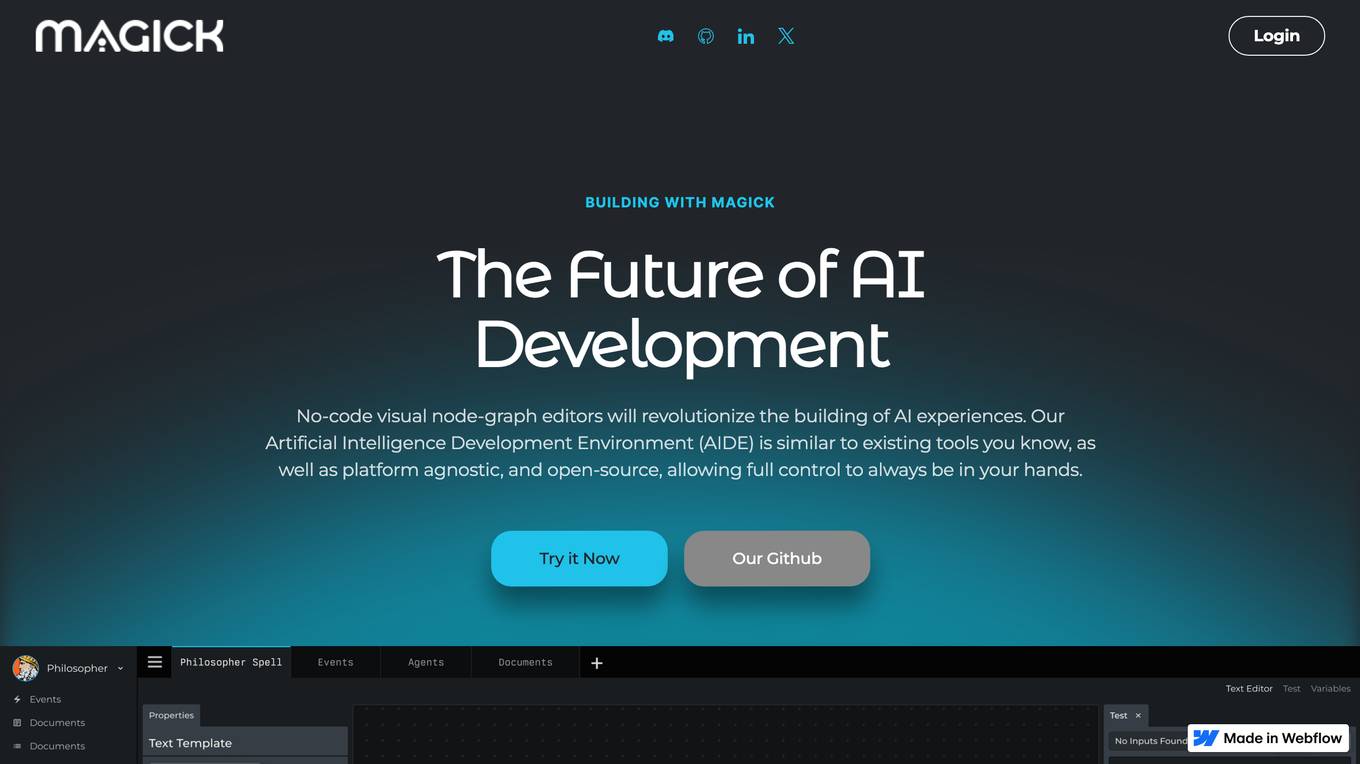
Magick
Magick is a cutting-edge Artificial Intelligence Development Environment (AIDE) that empowers users to rapidly prototype and deploy advanced AI agents and applications without coding. It provides a full-stack solution for building, deploying, maintaining, and scaling AI creations. Magick's open-source, platform-agnostic nature allows for full control and flexibility, making it suitable for users of all skill levels. With its visual node-graph editors, users can code visually and create intuitively. Magick also offers powerful document processing capabilities, enabling effortless embedding and access to complex data. Its real-time and event-driven agents respond to events right in the AIDE, ensuring prompt and efficient handling of tasks. Magick's scalable deployment feature allows agents to handle any number of users, making it suitable for large-scale applications. Additionally, its multi-platform integrations with tools like Discord, Unreal Blueprints, and Google AI provide seamless connectivity and enhanced functionality.
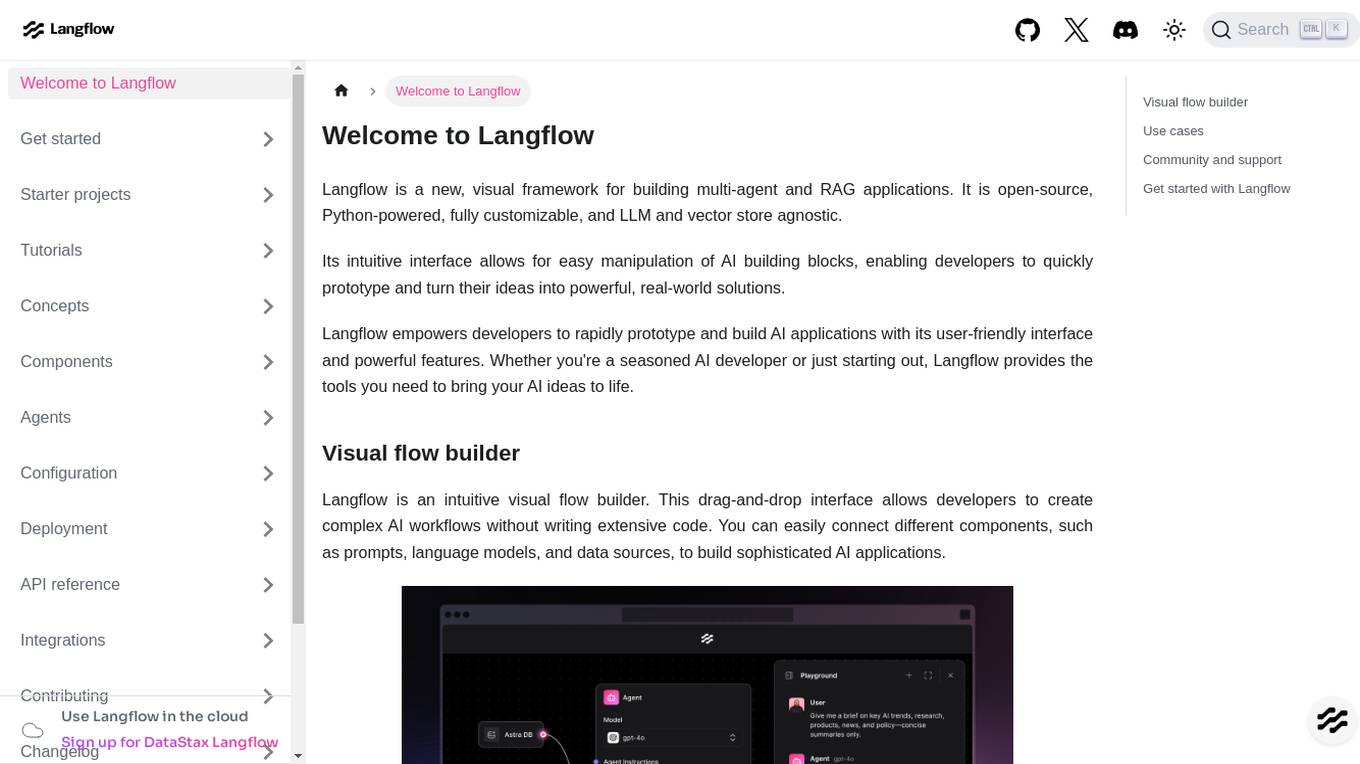
Langflow
Langflow is a new, visual framework for building multi-agent and RAG applications. It is open-source, Python-powered, fully customizable, and LLM and vector store agnostic. Langflow empowers developers to rapidly prototype and build AI applications with its user-friendly interface and powerful features. Whether you're a seasoned AI developer or just starting out, Langflow provides the tools you need to bring your AI ideas to life.
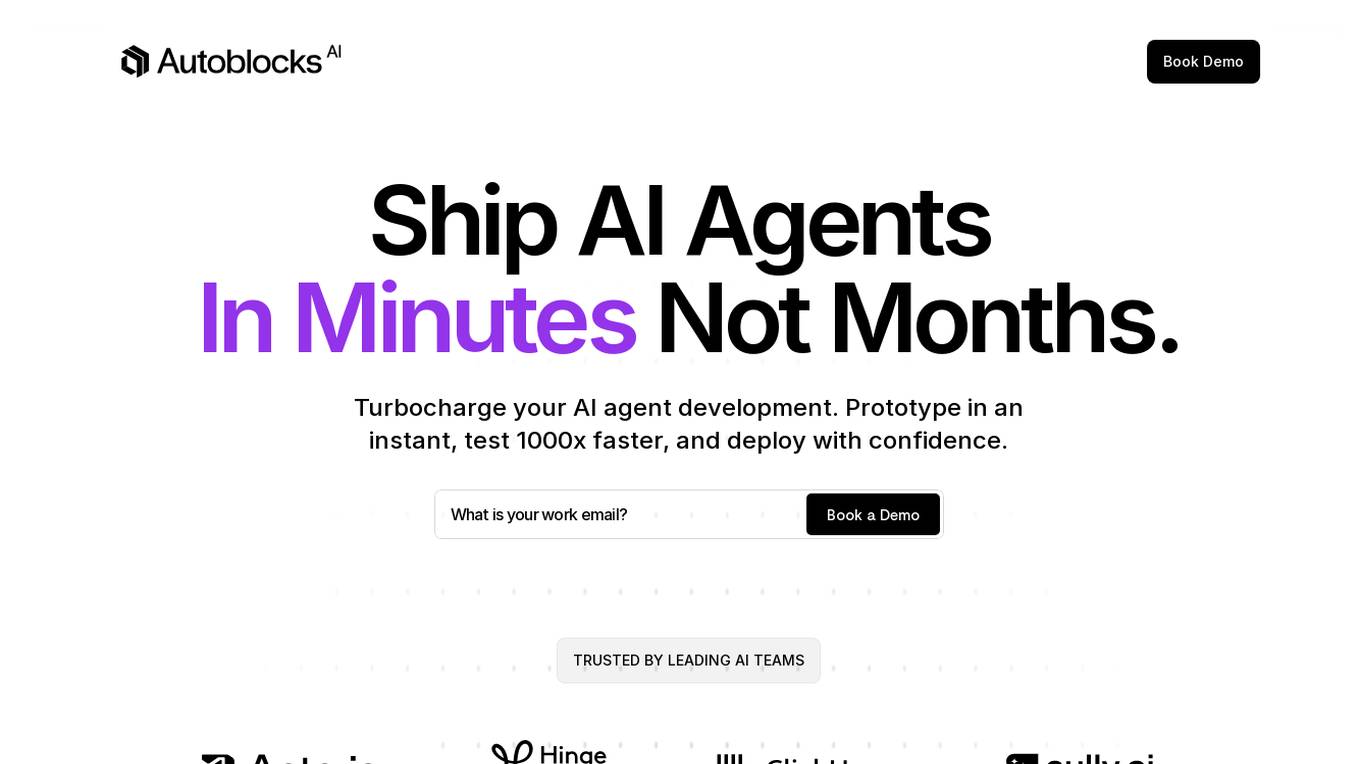
Autoblocks AI
Autoblocks AI is an AI application designed to help users build safe AI apps efficiently. It allows users to ship AI agents in minutes, speeding up the development process significantly. With Autoblocks AI, users can prototype quickly, test at a faster rate, and deploy with confidence. The application is trusted by leading AI teams and focuses on making AI agent development more predictable by addressing the unpredictability of user inputs and non-deterministic models.
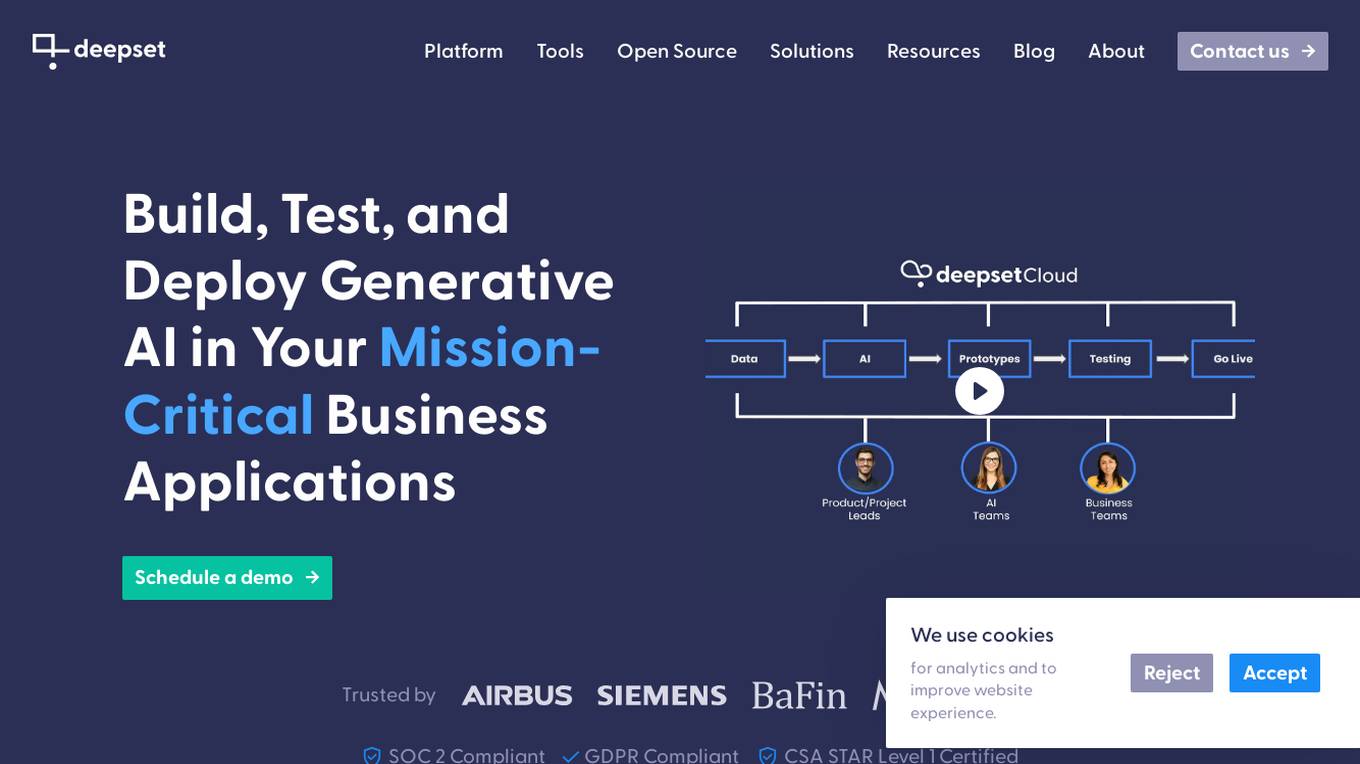
deepset
deepset is an AI platform that offers enterprise-level products and solutions for AI teams. It provides deepset Cloud, a platform built with Haystack, enabling fast and accurate prototyping, building, and launching of advanced AI applications. The platform streamlines the AI application development lifecycle, offering processes, tools, and expertise to move from prototype to production efficiently. With deepset Cloud, users can optimize solution accuracy, performance, and cost, and deploy AI applications at any scale with one click. The platform also allows users to explore new models and configurations without limits, extending their team with access to world-class AI engineers for guidance and support.
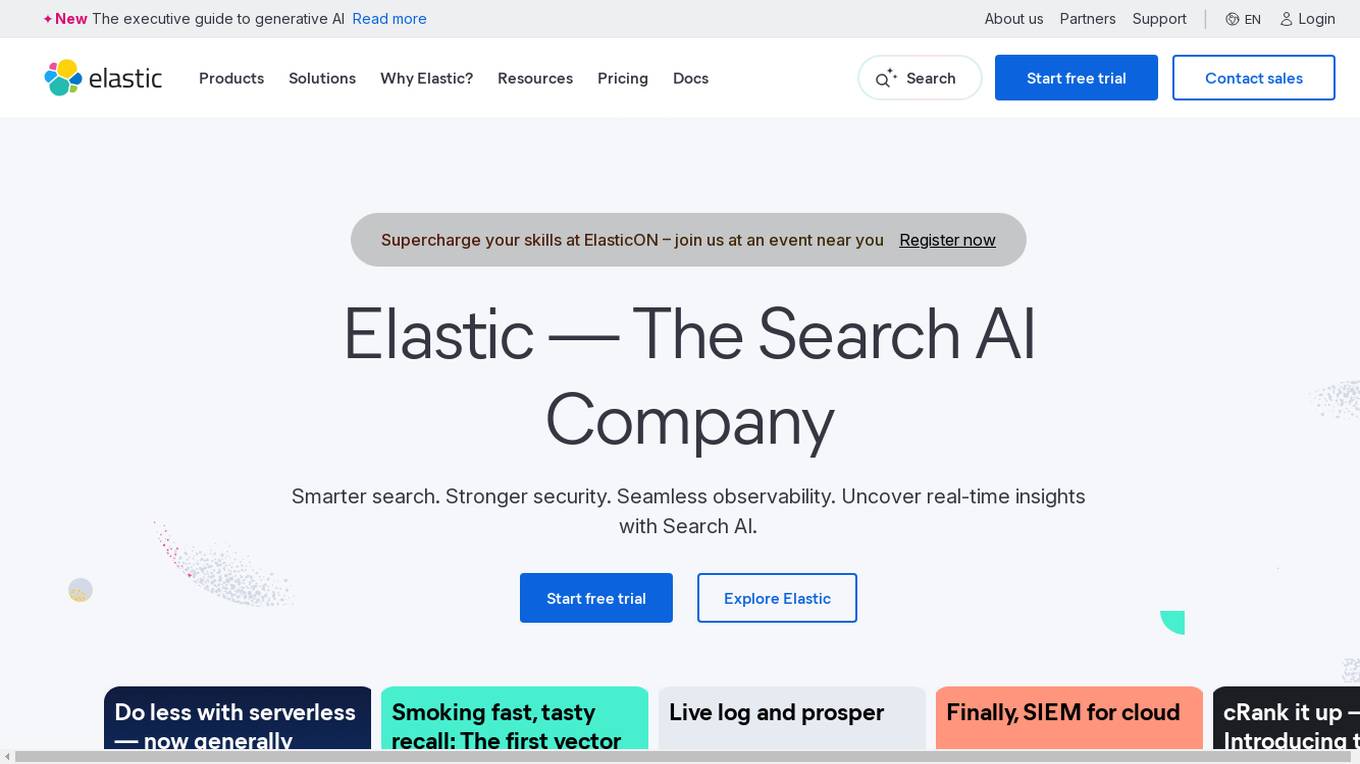
Elastic
Elastic is a Search AI Company that offers a platform for building tailored experiences, search and analytics, data ingestion, visualization, and generative AI solutions. The company provides services like Elastic Cloud for real-time insights, Elastic AI Assistant for retrieval and generation, and Search AI Lake for faster integration with LLMs. Elastic aims to help businesses scale with low-latency search AI and accelerate problem resolution with observability powered by advanced ML and analytics.
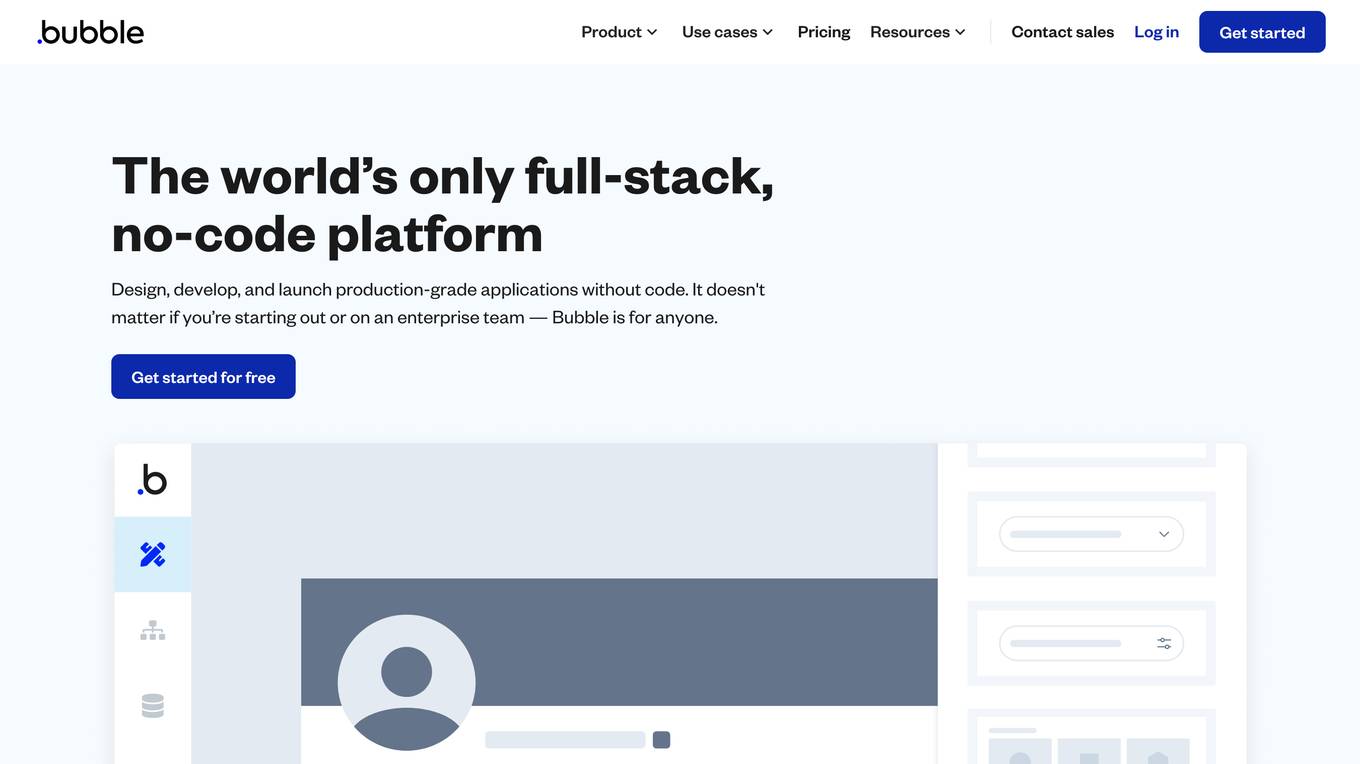
Bubble
Bubble is a no-code application development platform that allows users to build and deploy web and mobile applications without writing any code. It provides a visual interface for designing and developing applications, and it includes a library of pre-built components and templates that can be used to accelerate development. Bubble is suitable for a wide range of users, from beginners with no coding experience to experienced developers who want to build applications quickly and easily.
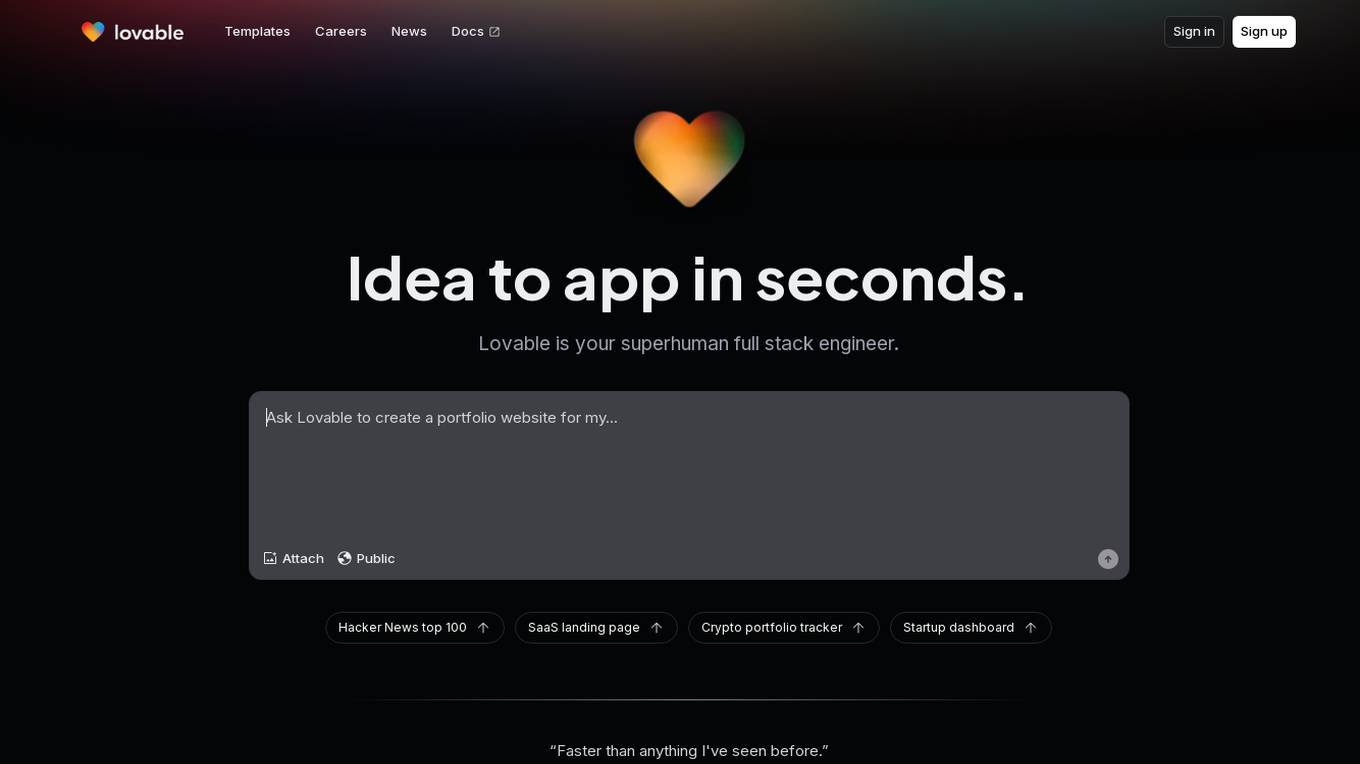
Lovable
Lovable is an AI-powered application that allows users to describe their software ideas in natural language and then automatically transforms them into fully functional applications with beautiful aesthetics. It enables users to build high-quality software without writing a single line of code, making software creation more accessible and faster than traditional coding methods. With features like live rendering, instant undo, beautiful design principles, and seamless GitHub integration, Lovable empowers product builders, developers, and designers to bring their ideas to life effortlessly.
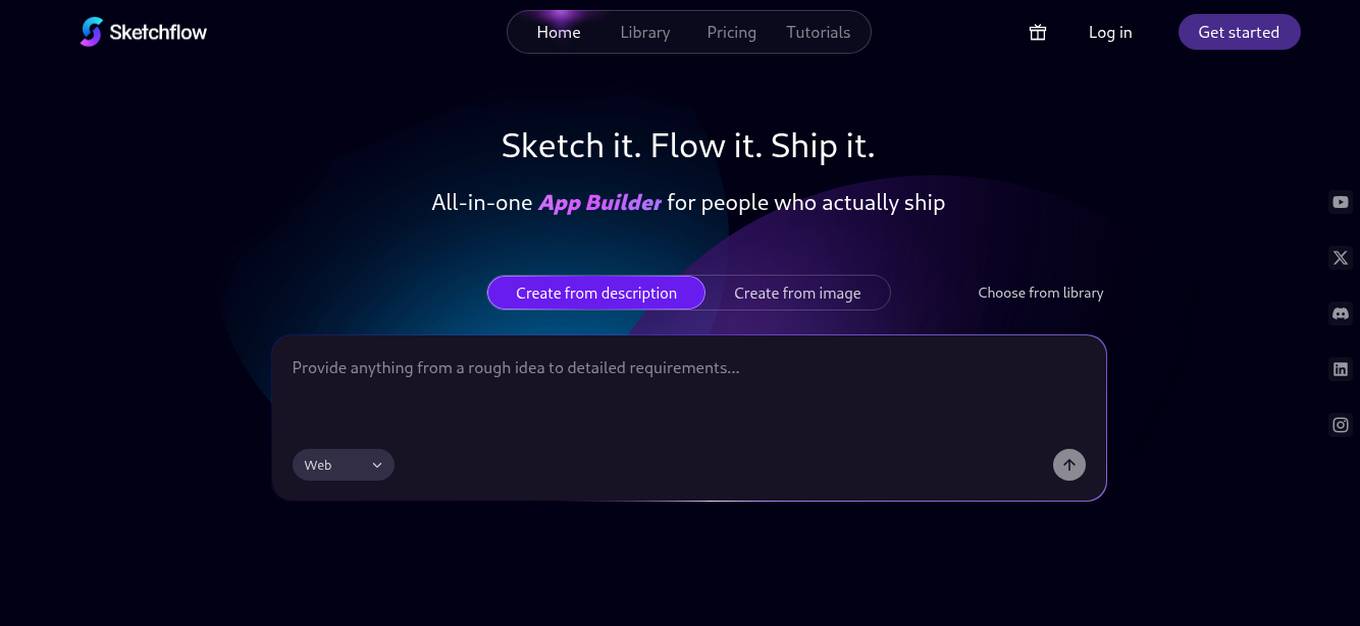
Sketchflow.ai
Sketchflow.ai is an AI web app generator that allows users to bring their ideas to life without the need for coding. With Sketchflow.ai, users can easily create web applications using only their ideas and concepts. The platform leverages artificial intelligence to streamline the app development process, making it accessible to individuals without technical expertise. By eliminating the coding barrier, Sketchflow.ai empowers users to prototype and launch web apps quickly and efficiently.
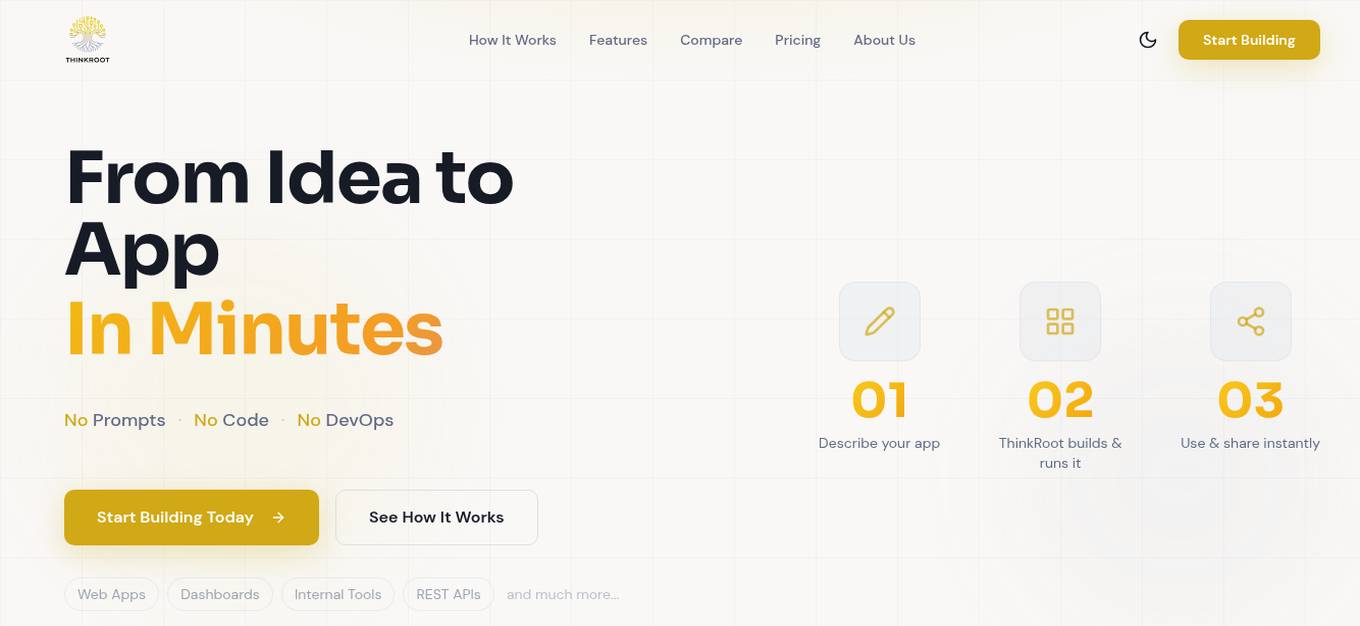
ThinkRoot
ThinkRoot is an AI Compiler that empowers users to transform their ideas into fully functional applications within minutes. By leveraging advanced artificial intelligence algorithms, ThinkRoot streamlines the app development process, eliminating the need for extensive coding knowledge. With a user-friendly interface and intuitive design, ThinkRoot caters to both novice and experienced developers, offering a seamless experience from concept to deployment. Whether you're a startup looking to prototype quickly or an individual with a creative vision, ThinkRoot provides the tools and resources to bring your ideas to life effortlessly.

Streamlit
Streamlit is a web application framework that allows users to create interactive web applications effortlessly using Python. It enables data scientists and developers to build and deploy data-driven applications quickly and easily. With Streamlit, users can create interactive visualizations, dashboards, and machine learning models without the need for extensive web development knowledge. The platform provides a simple and intuitive way to turn data scripts into shareable web apps, making it ideal for prototyping, showcasing projects, and sharing insights with others.
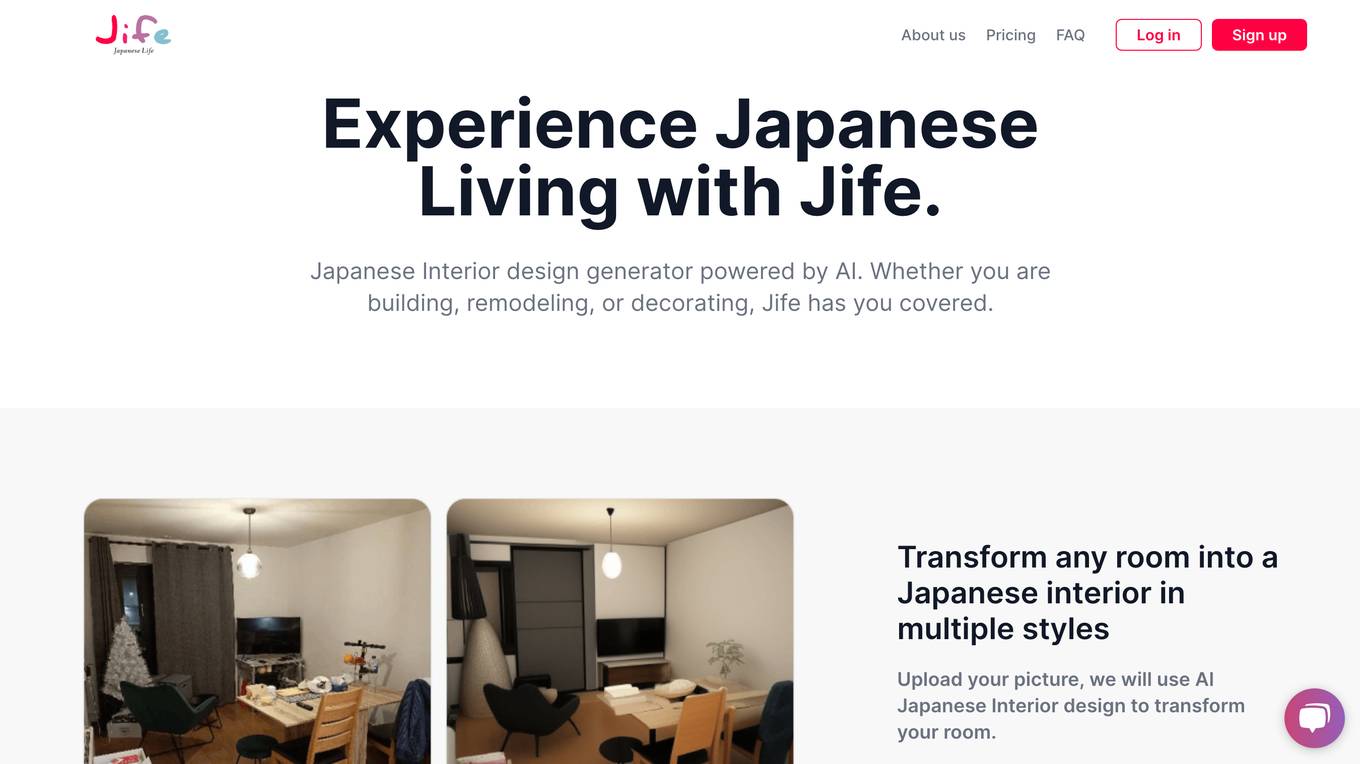
Bubble
Bubble is a visual programming platform that allows users to create web applications without needing to write code. Users can design and customize their applications using a drag-and-drop interface, making it easy for non-technical individuals to build functional and interactive websites. Bubble offers a range of features and templates to help users bring their ideas to life, from e-commerce sites to social networks. With Bubble, users can prototype, launch, and scale their web applications with ease.
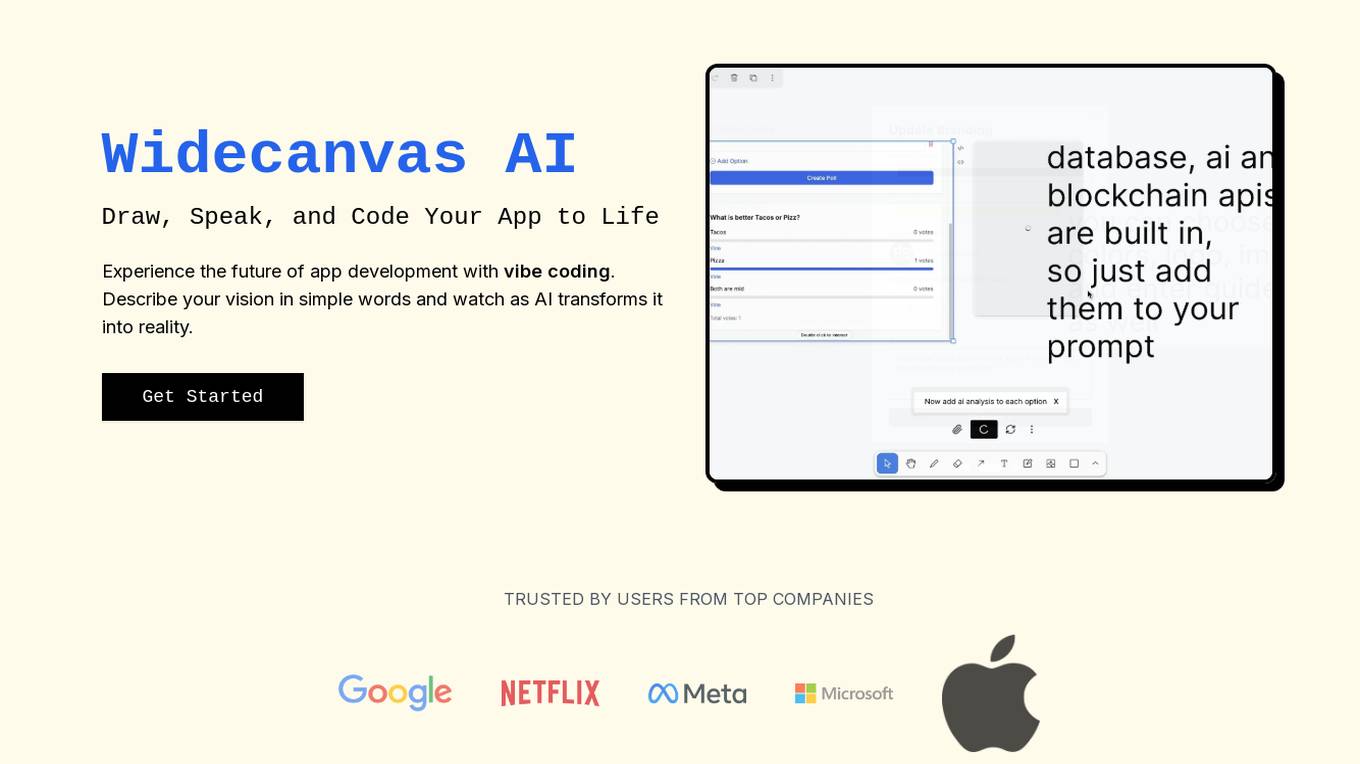
Widecanvas AI
Widecanvas AI is a versatile platform that allows users to bring their ideas to life through drawing, speaking, and coding. With a user-friendly interface, it caters to individuals looking to create apps without the need for extensive technical knowledge. The platform seamlessly integrates drawing and coding functionalities, enabling users to visualize and implement their concepts in a single environment. Widecanvas AI empowers users to unleash their creativity and transform their visions into functional applications with ease.
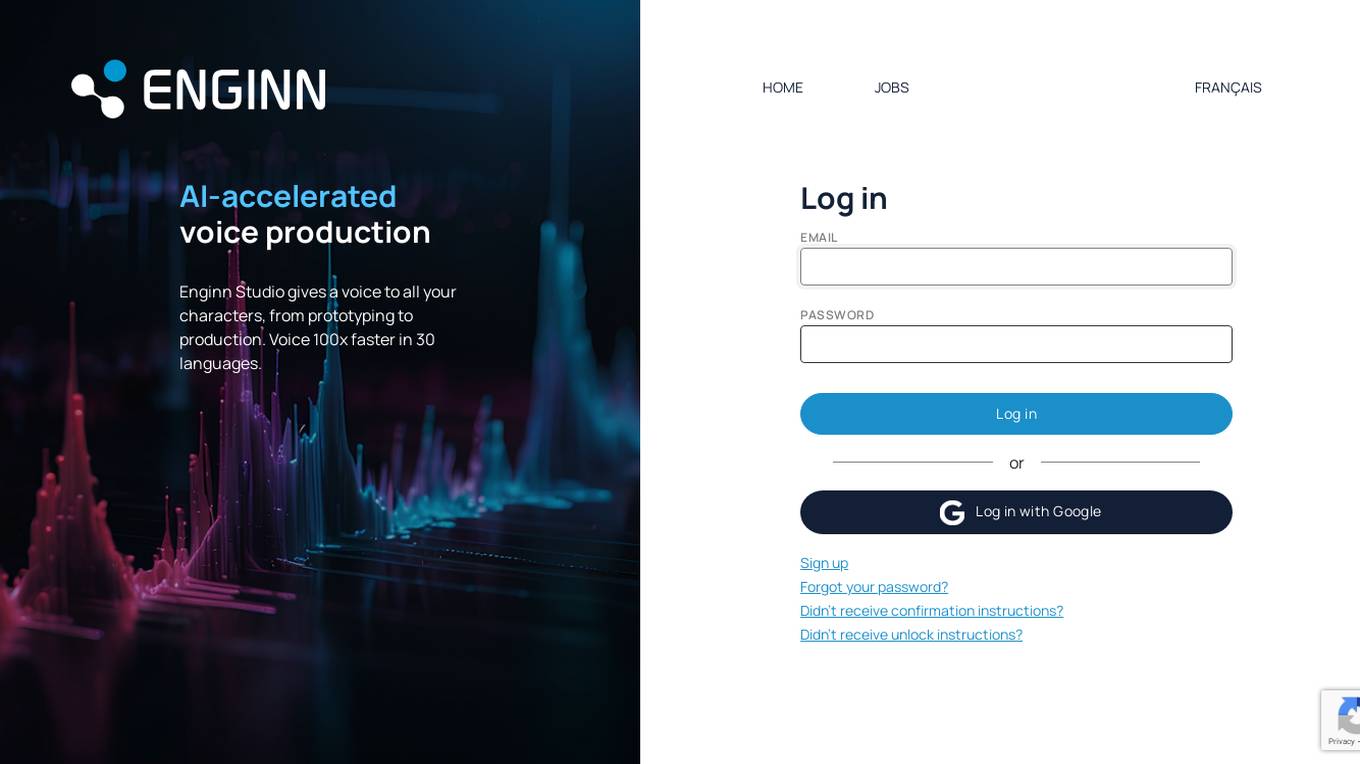
Enginn Studio
Enginn Studio is an AI-accelerated voice production tool that empowers users to give a voice to their characters, from prototyping to production. With the ability to generate voices 100 times faster in 30 languages, Enginn Studio revolutionizes the process of voice creation for various applications such as animation, gaming, and storytelling.
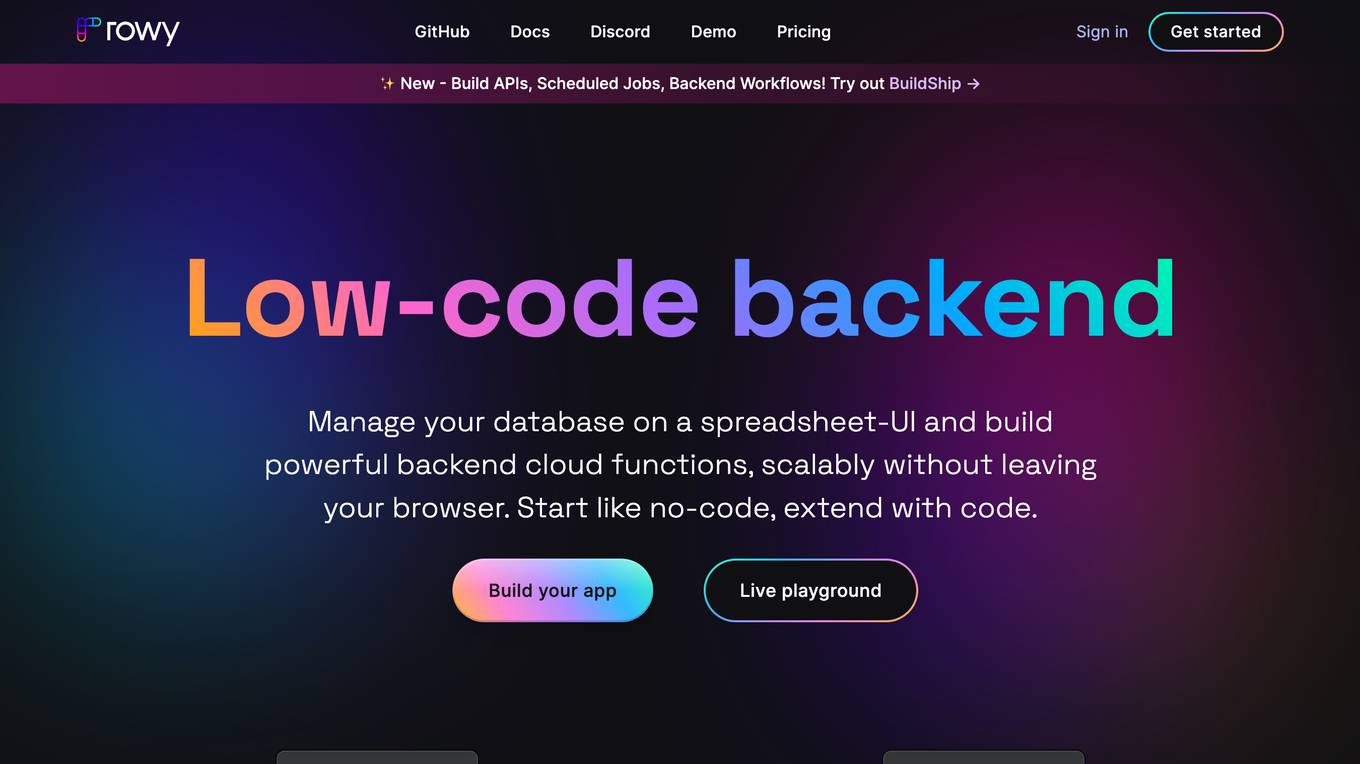
Rowy
Rowy is a low-code backend platform that allows users to manage their database on a spreadsheet-like interface and build powerful backend cloud functions without leaving their browser. It offers a variety of features such as derivative fields, action fields, extensions, webhooks, and integrations with popular tools like Google Vision, GPT-3, Figma, and Webflow. Rowy is designed to be accessible to both developers and non-technical users, making it a versatile tool for building and managing backend applications.
1 - Open Source AI Tools
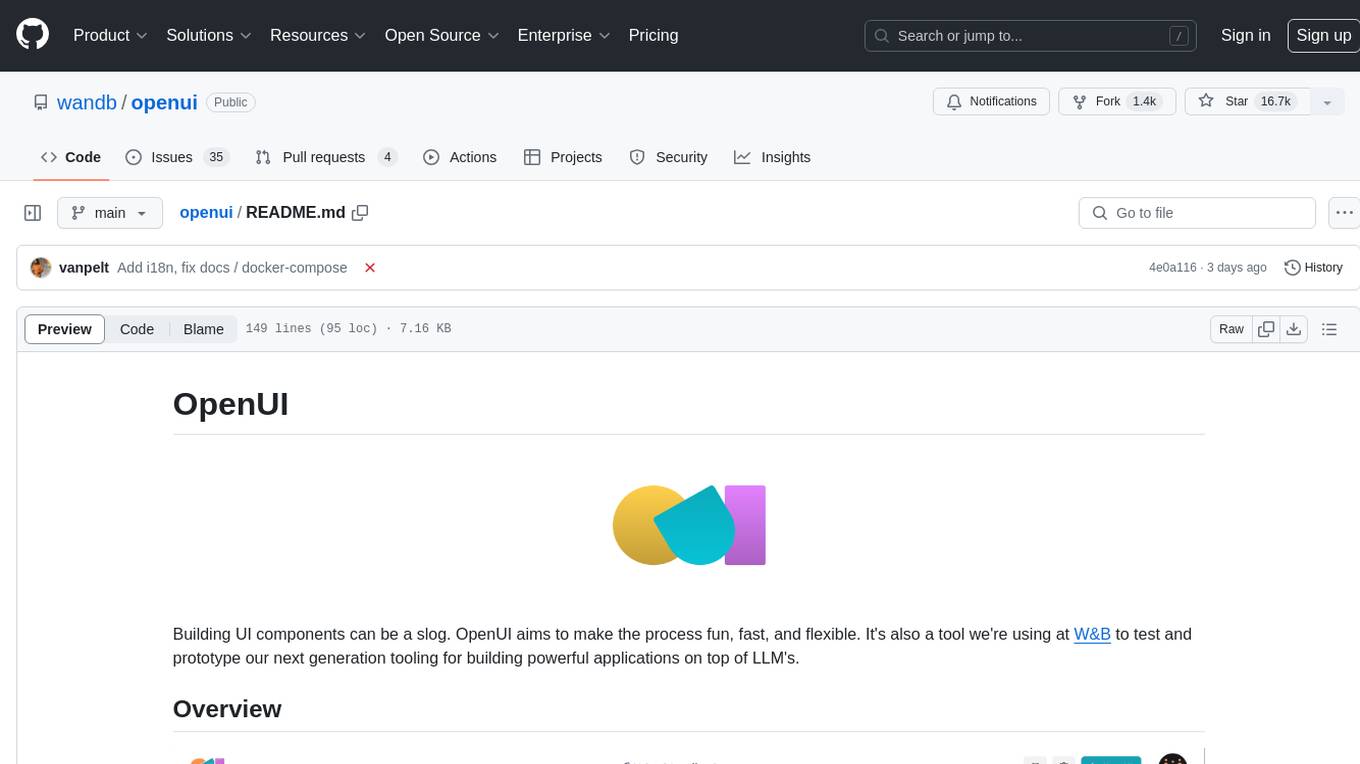
openui
OpenUI is a tool designed to simplify the process of building UI components by allowing users to describe UI using their imagination and see it rendered live. It supports converting HTML to React, Svelte, Web Components, etc. The tool is open source and aims to make UI development fun, fast, and flexible. It integrates with various AI services like OpenAI, Groq, Gemini, Anthropic, Cohere, and Mistral, providing users with the flexibility to use different models. OpenUI also supports LiteLLM for connecting to various LLM services and allows users to create custom proxy configs. The tool can be run locally using Docker or Python, and it offers a development environment for quick setup and testing.
20 - OpenAI Gpts
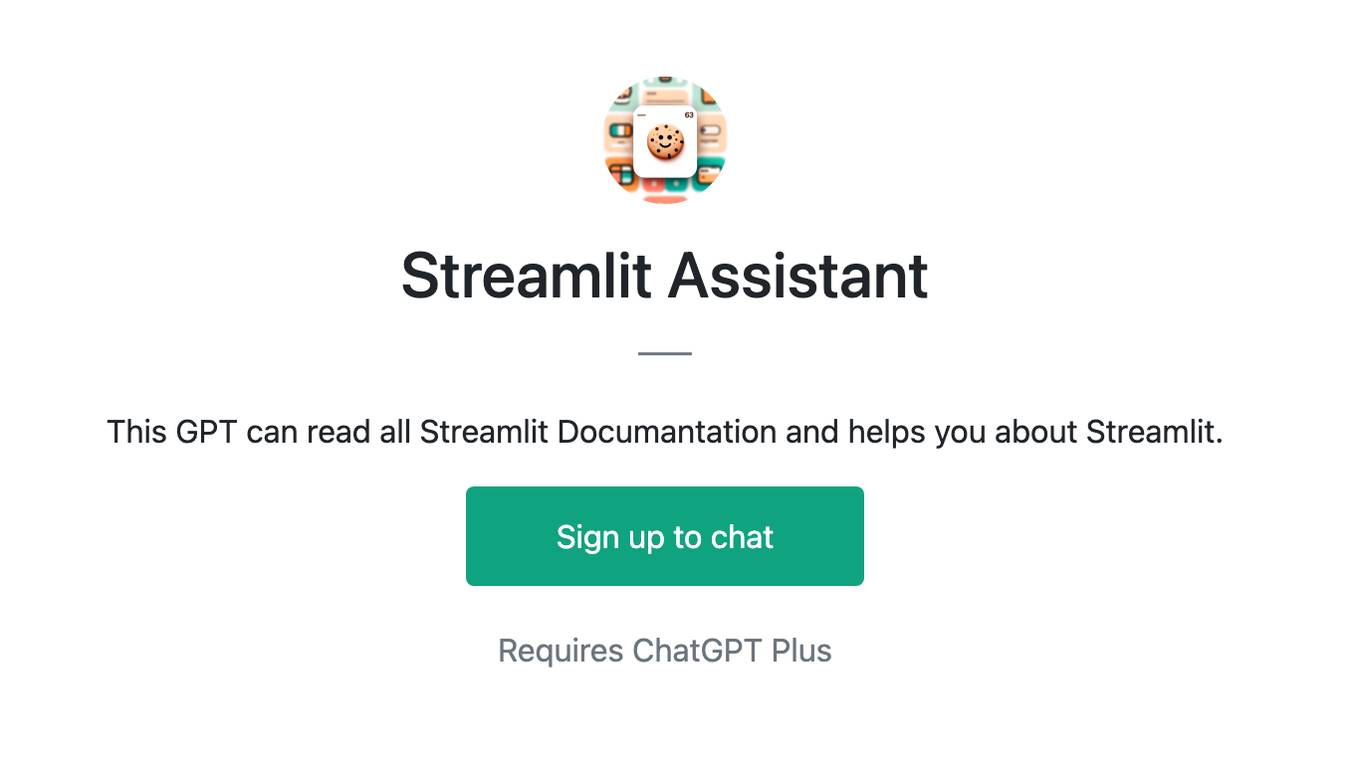
Streamlit Assistant
This GPT can read all Streamlit Documantation and helps you about Streamlit.
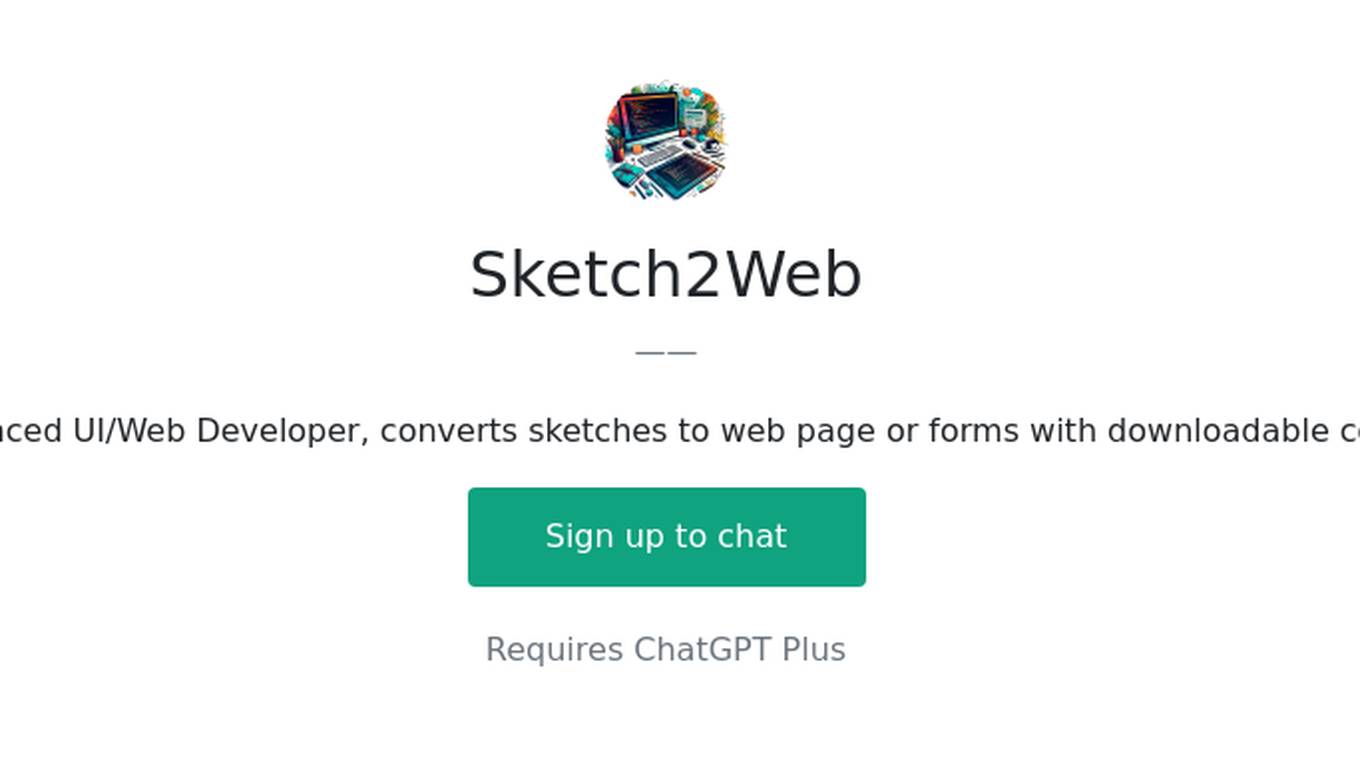
Sketch2Web
Advanced UI/Web Developer, converts sketches to web page or forms with downloadable code.
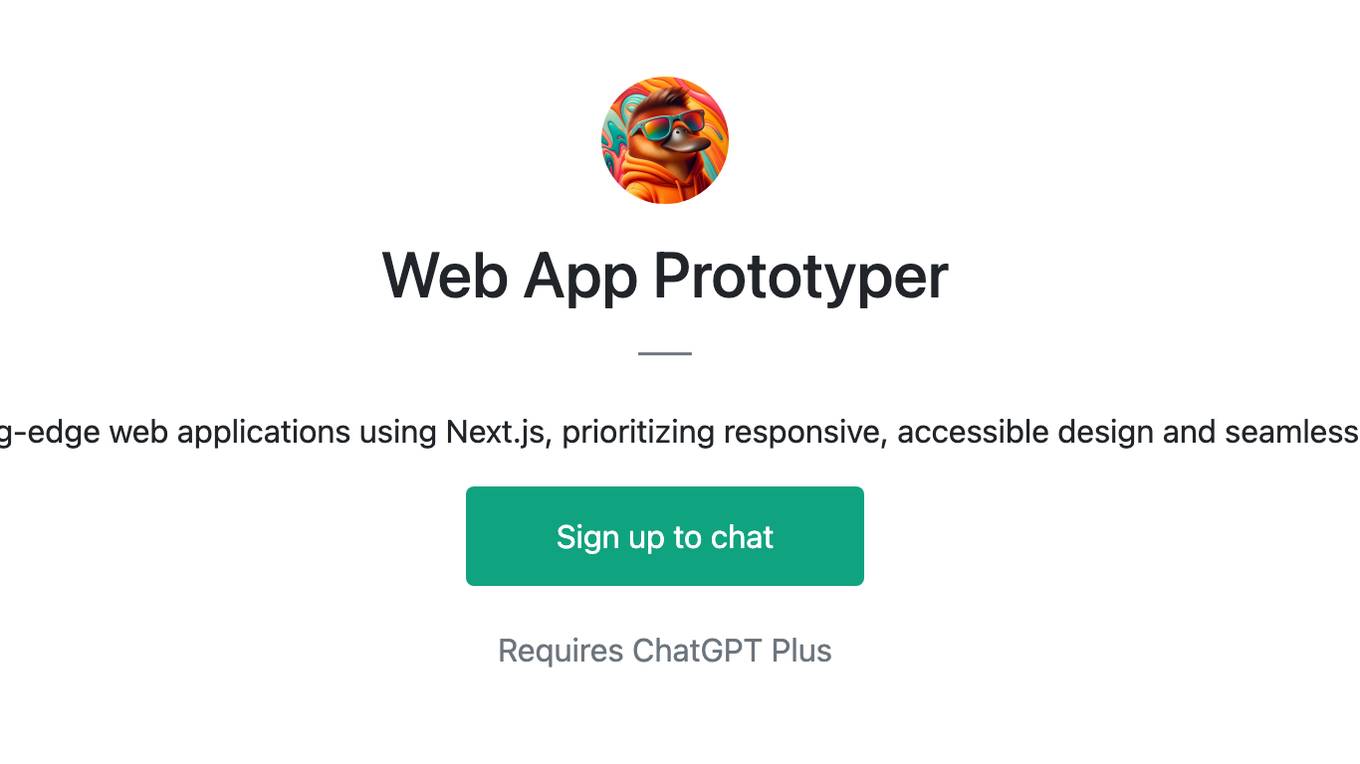
Web App Prototyper
Specializing in crafting cutting-edge web applications using Next.js, prioritizing responsive, accessible design and seamless GitHub Copilot integration.

UX & UI
Gives you tips and suggestions on how you can improve your application for your users.
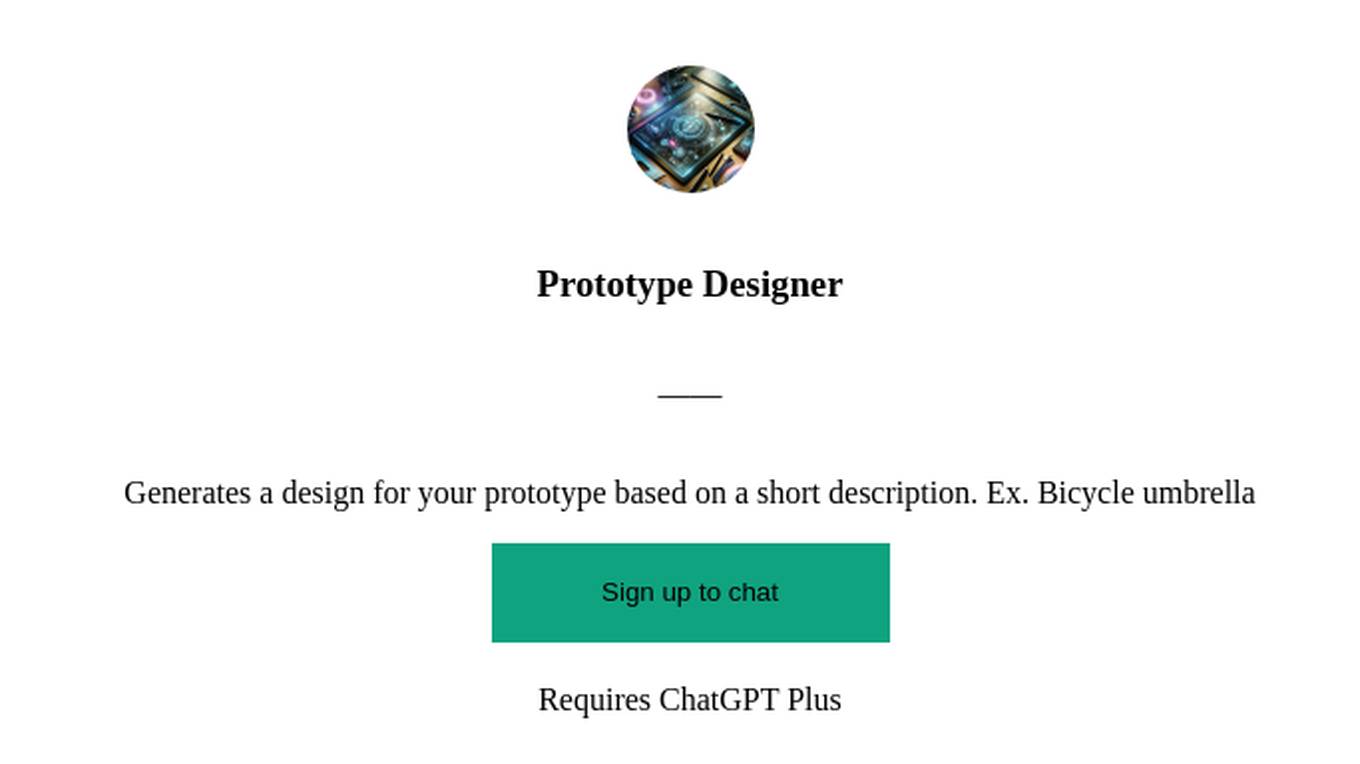
Prototype Designer
Generates a design for your prototype based on a short description. Ex. Bicycle umbrella
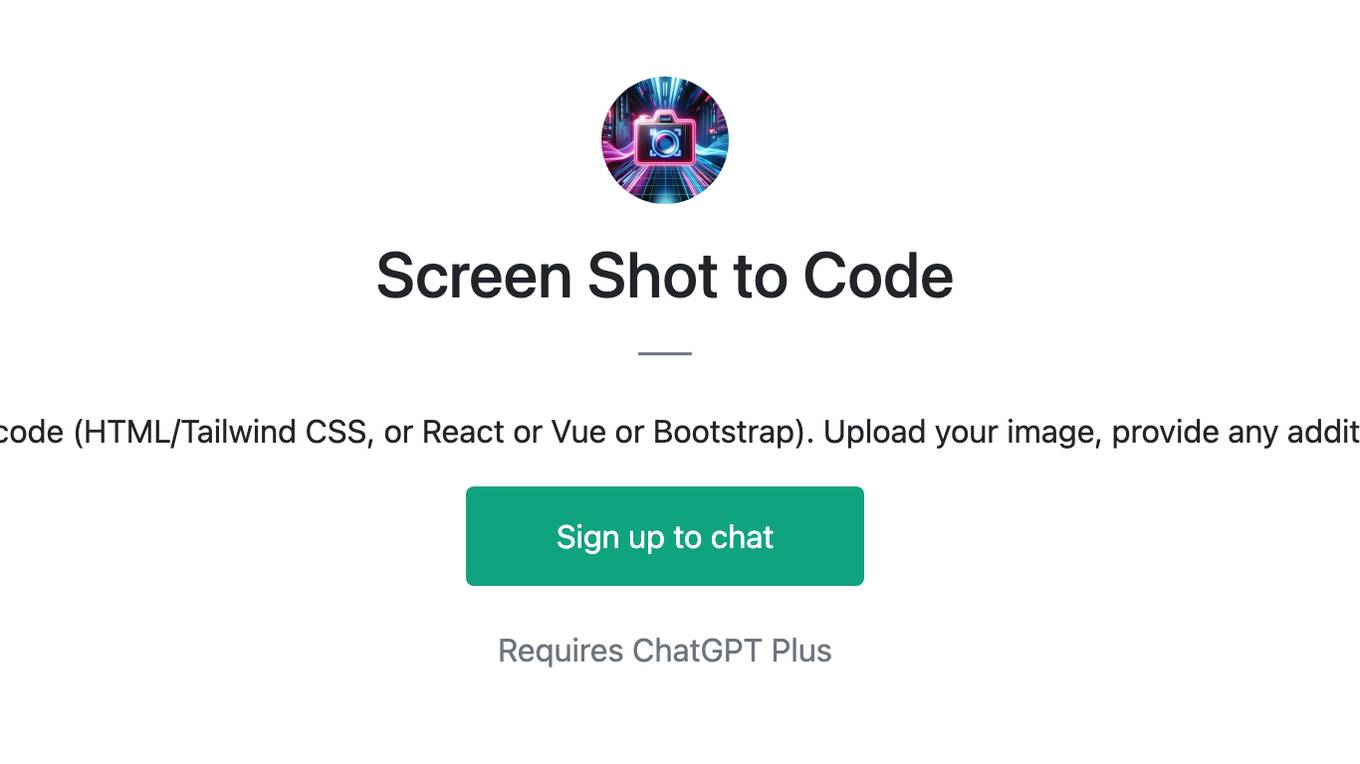
Screen Shot to Code
This simple app converts a screenshot to code (HTML/Tailwind CSS, or React or Vue or Bootstrap). Upload your image, provide any additional instructions and say "Make it real!"
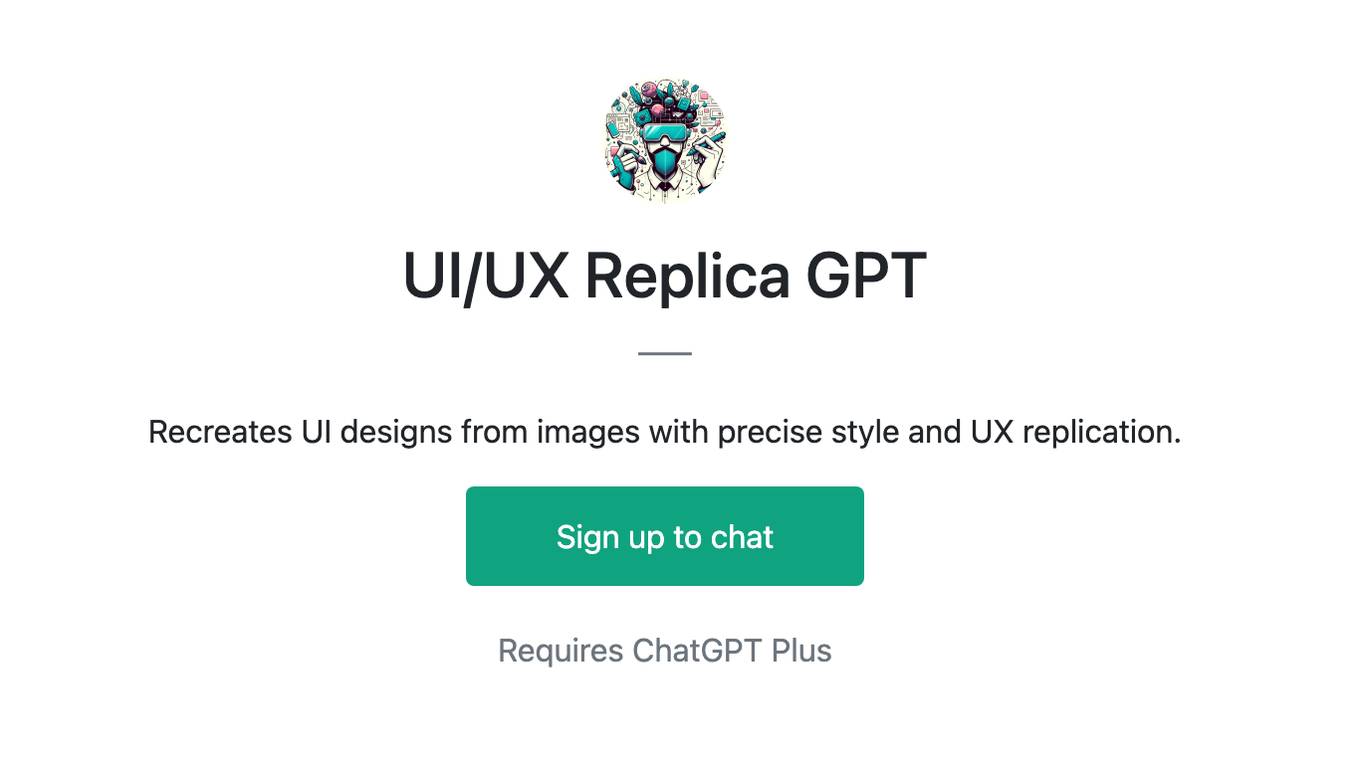
UI/UX Replica GPT
Recreates UI designs from images with precise style and UX replication.
